#imagine warriors figuring this out and having to come to terms w the fact that the ferocious and oddly caring war deity was taking on the-
Text
hey. fierce deity but it’s a jekyll and hyde situation. fierce’s personality takes on whatever traits that Time tries to bury and ignore. however violent or benevolent he acts depends entirely on what Time is suppressing.
#either like. time is secretly very unsatisfied and bitter and is barely not lashing out#so fierce is constantly bitter and lashing out#or time is suppressing his emotions bc he’s afraid of attachment#so fierce is incredibly paternal and comforting#u can go either way (or both at the same time which would be very very interesting. time’s not showing his anger at how his family has been-#- treated and is horrified of the prospect of having found family in people he Knows he will have to leave at some point)#imagine warriors figuring this out and having to come to terms w the fact that the ferocious and oddly caring war deity was taking on the-#- personality of the sweet but shy and closed off 10 yr old he had come to care for#what a wild ride that would be#pspspspsps angst writers. cmere.#i might write this but i’d love to see what others can do w this idea#time lu#lu time#linked universe#linkeduniverse#fierce deity lu#lu fierce deity#lu#ft my interpretation of jekyll and hyde#i think this is the common understanding of it. i don’t know i just listened to my dad rant abt it two years ago and think ik what im on abt
65 notes
·
View notes
Text
THE TALK w/@InsanelyHotAss
Z:
Looking out over the crowd, I could feel the beat of the music resonate against my chest wall. It was a sensation that amped up many. For me, it calmed me, centered me, this was my element. Chaos. Over the years, I had evolved into a changed male, mostly due to my shellan and our young. But, this part of me would never change, the part of me that needed mayhem. I would always crave absolute anarchy in some part of my life. It made me a better warrior.
As the kid sat his ass back down, I could feel the tension flowing off him in waves. He wanted to kick my ass right there and he didn’t care that it would get him dragged out of the club. Most would never face off with a Brother, and out of all of us, I was the last one anyone wanted to go up against. Not that I wanted to brag about that, it’s just the way that it was. I may not have been as big as some of my other Brothers, but I was scrappier than every of them combined, and what I put out to the world was pretty much a fuck off to everyone. Most people gave me a wide berth. But, this kid, didn’t care about all that. He’d be right up in my business anyway, if the bouncers weren’t making it a point that he wasn’t going to get very far with it. I respected that drive in him. That was part of why I was here.
“I’ve got a proposition for you.” I tossed out, without even turning his way.
Zeke: {Seated I unclenched my fists and put them on my knees to stop myself from reaching out and touching someone on his face. Sitting here looking at him as I waited for him to speak or continue with his quietness. I looked between both him and the bouncer, my brows raised like they were stupid. Yeah, maybe I was playing with fire here, as I continued to be an ass. The second the big fucker spoke, my other brow rose in surprise}
What kind of proposition are you speaking about? Does it give me the chance to get back at the assholes who killed my parents?
{I shot the questions off without thought because he knew it he had to know that I was eager to get back at the fuckers.
I was a little ticked off at the fact he wasn't even looking towards me as he talked to me. Yet at the same time I was hoping that this proposition was something that would help me find these guys or whatever they were. The smell in the house back when I found my parents dead, was sickening but I ignored it.}
Z:
My lip quirked up at the corner as I heard his question roll out. Yup. This kid had drive alright. Was it enough, though? I’d seen a number of males come into the training program that had washed out on day one. The desire for vengeance was not going to get this kid what he wanted. He had a purpose, to avenge his family’s death. That purpose would only get him so far, and if he wasn’t careful, it would get him killed. He also had attitude. Another thing that was good to have, but if not honed the right way, it could be a serious flaw. He also had the build of a fighter. However, there were things he was obviously lacking, restraint was a big one, discipline being another, proper training the most important. The Brotherhood had the tools to mold this kid into a warrior. The kid needed to show up and be willing to shed some of that pride he had in spades.
I continued to look out over the crowd as I began to speak again. I had respect in what this kid wanted to do, and his drive to do it. However, I didn’t respect the kid, yet. He had a long way to go to earn that from me and until he actually did, I wasn’t going to give him any reason to make him think I did. “I can put you in a position to learn how to slay those fuckers, and live through it to kill another day. I’m not talking about going out half-cocked and beating the fuck out of any that you find, hoping that you’ll kill them. I’m talking about becoming a warrior, fighting them on the daily for our race. Is that something that would interest you?”
I was pretty sure I pegged Zeke right. He had that drive, that need to avenge, but he also had no one left. We could offer him more than a way to satisfy his drive, we could give him a home, a place to feel that he belonged.
Zeke: {As I heard his words being said, I sat back and relaxed some and knew this was true. I didn't know who these bastards were that killed my parents. All I knew how to do was fight and figured there was more to it than throwing some punches at them.
As I sat back and thought about what he said, I too started looking out over the crowd in front of us and heard the music but not really listened to it. I felt the bass of it vibrate my body and focused on some that I knew were civilians as well, they wouldn't be able to defend themselves as well as myself, without real training. I've heard about this program before and didn't think I'd do it but with my situation now, I'd need it to avenge my parents and any other vamp killed by them.
I turned my head back and took a deep breath to speak to the big bastard} I'd like to go out and do this the way it's needed to be done. I want, no, I need to avenge my parent's death. They were all I had and now I have nothing left but myself left. I don't have any other relatives left as my friends I had, do. They no longer speak to me and I'm out here alone, which isn't really a big deal to me. {Giving a slight shrug as I was sitting back and noticed that the bouncer has back up some from us as we spoke but he stuck close by like I or more like the big bastard was going to do something}
Z:
The kid was saying all the right words, but this wasn’t only about that. This was way more than speaking the words. This was about doing. I was not a male of many words, but where this issue was concerned, I had quite a bit to say.
This was the point where I turned to him. Not because I wanted to show him respect, but because this was no longer about what he said, but how he said it. It wasn’t about the words coming out of him mouth, but about the manner in which he would say them, the twitch around his mouth showing me the intensity of his will, the fight in his eye as the words tumbled from his mouth. I needed to know that if he answered these questions the way I thought he would, that he meant them down to his bones.
“This is not going to be easy. You are going to be learning things about yourself you never expected. You will be fighting every fiber of your being on the daily. You will be asked to do things you won’t want to do. You will be expected to take that chip on your shoulder and shove it up your ass. Respect for everyone around you will be demanded of you, whether you like the person or not, when in return you won’t get any. It will be the most grueling thing you have ever put yourself through. But, I promise you, in the end, if you succeed in making it through the program, you will be the best you, you could ever imagine. You will be able to go out and kill those foul-smelling fuckers without breaking a sweat, and you will earn the utmost respect of the whole race.”
Again, not one for words, really, but this was one of the most important parts of my job. Finding kids that are worth our time and making sure they know what they are getting themselves into. Some of them are all gung ho about it all, then they get in there and aren’t willing to put in the work. They expect it to be easier. Others think they already know it all and think they can skip past half of it. Still others, just don’t have what it takes. Part of my job is to get past all that bullshit before they hit the door. It’s up to the program to weed the rest out.
Zeke: {Giving the bastard a deadpan stare. Who did he think he was talking to. I grew up pushing against the grain in the glymera, especially after I transitioned. Sure I had the female they supplied for me but that wasn't all I wanted in those terms but she was what I like too. Hell, this was confusing as fuck to me in my own ways but I took another deep breath and replied to him}
I'm willing to do and go through anything to do what I need to, go avenge my parents. They did everything for me growing up and accepted me for who I am. Not once had they questioned me at all. I'll go through hell to do this. I'll do what it takes to kill all the fuckers I can, no matter what. Even if that means caring another on my damn back to get the job done. I don't give up on things just because I grew up with the Glymera. Them fuckers don't know their heads from their asses and want to run away while I want to run towards what is going on and fight for those who can't. My parents didn't deserve what happened to them and neither do the others that have had this happen. I've been listening to the things going on and how half of them are caught completely unaware of thing when it happens to them. I don't want to be that blind to what's going on. I want to be able to kill them fuckers.
{Leaning back and not even seeing his reaction to my words, if he didn't like me and thought I wasn't suitable for his club. So fucking be it. I'd do what I'd have to do to for my parents. I held my hand up as I saw the waitress, signalling for another drink and looking out into the crowd. Now I was irritated again but this time at the fuckers who killed my parents and not the asshole next to me}
Z:
As I listened to Zeke go on about the Glymera and him not being accepted with them for who he was, I yawned and almost got up right then. But, something in my gut told me this kid was for real, even if the words weren’t what I wanted to hear.
“Three things, kid. One: Your chip is flashing in neon. That’s the first thing that will get shoved up your ass. Bank on it.
“Two: this is not, ‘My parents didn’t accept me for who I was, so I had to fight their expectations of me.’ No one’s parents ever do in the Glymera, kid. This is, ‘I literally can’t move another inch, but if I don’t I’m cleaning this gymnasium floor with a toothbrush.’ This is learning to become the person you were always meant to be, but never knew you could be. This is learning respect in a way you’ve never known it, and earning that kind of respect for yourself. This is a life altering offer and it will only come around this once.
“And three: If you make this all about vengeance for your family, you’ll wash out on the first day.”
I slid a card across the table to him. All it had on it was a phone number. “Think about it before you dial that number. Do it, don’t do it. I think you’ve got it in you, but it’s up to you, now. Ball’s in your court.” I didn’t wait for an answer. I just stood up and walked off. I was pretty sure we’d be hearing from this kid.
#TheTalk #SASBDB #BDBRP
1 note
·
View note
Text
arthur-rex continued
@arthur-rex

“What is it? Are the White Walkers on the move? Are they here?”
“Not the Walkers, their King. He has come into our camp, with a handful of his undead. He’s looking for you and Merlin now. He wants to speak with you both.”
*****
There are dead knights lying still and cold on the frosted ground at his feet.
Arthur tries not to let his anger show as he follows Sir Percival, step by step, coming closer towards the leader of the Undead waiting for him on a patch of ground near the centre of the camp.
That the Night King wishes to hold negotiations before their battle is unusual. Arthur had not heard of a precedent. Not from the other besieged Kings of Albion nor from the stories Shireen had shared of other encounters by Kings and Queens of Westeros. This was an Enemy that sent the mindless dead to swarm and overwhelm all in his path. Arthur could not imagine the Night King’s goal as anything less than annihilation of his kingdom and his people.
Which is something Arthur simply won’t allow.
Eyes fixed ahead upon the other King, the young Pendragon observes his opponent’s bearing, and the fact that the Night King is accompanied only by three of his generals. All of them share the same gaunt, hollow faces, wisps of long white hair flickering in the wind behind them. The bodies of dead men. It is only their eyes, horrible and animated with an eerie blue glow that animates them. Giving them a horrific facsimile of life.
Arthur comes to a standstill, not three metres in front of the undead King. Silence follows. The phantom seems to be curious, eyes roving over Arthur’s face and body as though he were memorising his outline, recalling perhaps the figure of a man from the Night King’s own past.
The blond suppresses his fear. “You wanted to talk with me. Here I am.”
The silence continues. Neither King moves, though the demonic light in the ice-cold eyes of the other appears to surge with a kind of animalistic anticipation. Arthur begins to grow a little wary.
Where is Merlin and his dragons?
*****
The Queen of Camelot joins the Princess not long after her husband has left with Sir Percival. Ducking under the flap of canvas that served as a doorway, she smiles grimly as she sees Shireen waiting on her chair. The girl seems anxious. Perhaps she is, thought she cannot be as anxious as Guinevere is in this moment.
Her husband may be about to die.

For a long time, the Queen knew this day may come. She had sworn to herself she would meet such a moment with bravery, and the courage Arthur had always admired in her. Taking a seat quietly beside Shireen, she reaches out a hand to lay on their girl’s own.
“Thank you for accompanying us to the battlefield. Your company has boosted the morale of the men and women here, dear Shireen.”
Squeezing her palm gently, the Queen attempts to stop the tears from filling her eyes. A hand slips into a pocket on her fur coat, withdrawing a tightly folded letter. She hands this over to the young woman.
“I have something for you, Camelot has received news from your mother. A raven was sent with a message that has just been relayed from the castle. She wants to know that she is thinking of you and hopes you are safe.”
*****
A hand creeps towards the hilt of his sword. The Night King notices the movement, matching it for the hand that comes to rest on an ice spear.
Arthur tenses, narrowing his eyes in a sudden surge of anger.

“You’ve killed my men outside of battle… You dishonour the code of non-violence between leaders before combat. I should have you struck down where you stand, before offering to meet on your terms. Speak, you devil!”
Ice-cold eyes flash in warning. The sudden volume of the words that fill Arthur’s head cause the blond to stumble, his free hand flying up to cradle his temple.
Little king. Do you think I care for you or your army? I am here for your Court Sorcerer. The one they call Emrys. Summon him to you now, give me Emrys willingly - and I will take my leave with my warriors. There will be no battle. Your Albion will no longer be my domain to terrorise.

***
Shireen looked down at her stag, then closed her eyes. When would it end? The Night King could not be allowed to continue; if there was anything she agreed with the red woman on, it was that. The dead should be allowed to rest in peace, and the living should be allowed to enjoy their lives happily and without fear. It was the right of all, and the princess believed in it strongly. She only opened her eyes once more when Guinevere laid a hand upon hers, and, with it, she summoned a smile to her face. It was the one she was so used to giving her mother after a particularly bad night, sad but warm, worried but comforting, all at once. Turning her hand in the queen’s grip, she gave a gentle squeeze, a silent assurance that she would not leave Guinevere to face any of this alone.
She had been made to, as a child, and she would allow it to happen to no one else when she could prevent it.
“Thank you for welcoming me so warmly, Your Grace,” Shireen returned, dipping her head respectfully to the older woman. “Everyone has been so wonderful to me. I will strive to be with you all, until this whole terrible affair is behind you and your people, and you and your husband rule over a peaceful land once more.” The goodness of their hearts was all but tangible in their kindness to her, and she wished them all to be safe and well. She would not abandon even one of them...
“Oh,” Shireen took in a breath, a trembling hand releasing her stag into her lap and reaching for the letter… “Thank you.” She stared at the precious message, appearing almost reluctant to unfold it. “I…” The young woman trailed off, feeling as though she was stood in the snow with a fire crackling behind her and her mother’s arms tightly around her once more… Another, deeper, inhale that came out with a painful, stabbing sensation through her heart. She looked to Guinevere and blinked back her own tears. Now was not the time for any of that…
“I’m sorry, Your Grace,” her soft smile returned. “I did not expect such a thing and it caught me off guard. Are you all right? Have you been able to sleep and have you eaten?” She wanted to make sure that the other woman took care of herself. It was such an easy thing to forget in such a dire situation, especially when one’s mind was on the care of others.
And, Shireen knew, Guinevere was a queen whom would certainly think of her people before herself.
Her gaze was drawn, briefly, to the tent’s entrance, hoping that Arthur would return, alive and well, soon; before it returned to the queen, and she leaned in slightly closer to the other woman in a bid to offer her support with her presence in as much as she was able. “Would you like me to get you anything?”
0 notes
Note
Where does Robin stands nowadays in the Batman's world in your opinion? How different is it from where it started in the DCU?
Over 78 years and at least 4 ‘main’ versions, yeah:there’ve been some changes.
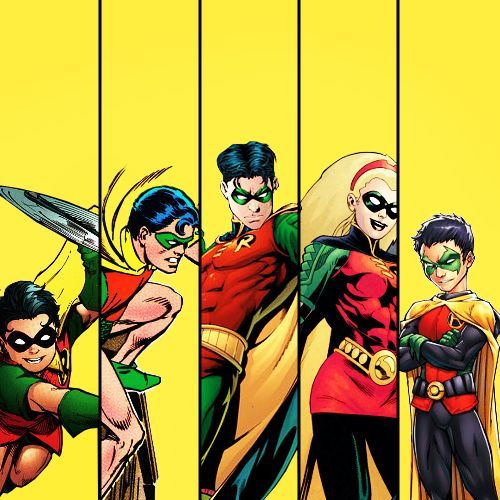
The thing about Robin though, in terms of how he grewalongside Batman? For the first 30ish years of his existence, he’s not actuallya character; he’s an accessory, another item on the utility belt, albeit oneBatman cared about a lot more than a grapple gun or flashbang. Past that greatpage with him and Batman swearing the vow by candlelight, providing valuablesymbolism and context for (much) later on - and even there, Batman’s emotionsand motivations for bringing this kid into his world amount to “Well, Iguess you and I were both victims of a similar trouble.” - Dick’s just*there*, the junior crimefighter, thrown in to add variety to fight scenes andgive his partner someone to bounce dialogue off of. As little as the comicsbrought up Batman’s parents dying in a filthy alley back then, it at leastoccasionally merited a mention, whereas I could almost believe you if you toldme Robin’s origin was literally never brought up again for the first 20 yearsof his career.

To be clear, that’s not at all a failing of those stories. Robin’s great even then, a fitting splash of color into Batman’s world thatpaved the way for further weirdness down the line and a great design in his ownright (even if the lack of pants hasn’t aged as well as Superman or Batman’slooks at the time), as well as a reader-identification figure in a time whenhanging out with Batman still seemed like a fun prospect. But compared to itsbig rival in Superman, which silly as it got still often dove intobig, primal emotions children could relate to - at least in the Silver Age- Batman was mostly rooted in process: here’s how Batmanfights his way past the goons/escapes the deathtrap/figures out the mystery.The closest there was to an ongoing emotional conflict was Batman wonderingwhether or not he should settle down with Batwoman. As a result, despite reamsof pagetime and plenty of solo stories, Robin himself had less characterizationthan, say, the likes of Jimmy Olsen, or even Lori Lemaris. Even stories zeroingin on their relationship like Robin DiesAt Dawn are based on Batman’s guilt, not anything substantial on Robin’send. He’s not even a tonal contrast yet, since Batman himself is pretty chipperby now, and will be for the next few decades.
The turning point is in 1969 when Dick leaves for college aspart of a general attempt at streamlining Batman’s operation; while the O’Neil/Adamsteam hadn’t come onboard yet, the Adam West and Burt Ward show had ended theyear before and I imagine DC was already feeling the backlash, so it marked thestart in earnest of trying to get everybody to take Batman a bit moreseriously. The unintended result being that Robin, while appearing on occasionin the main titles, was for all intents and purposes hermetically sealed awayin his own corner of the DCU away from what was happening to Batman, first insolo adventures and then with the New Teen Titans. And eventually,inexorably, that meant that Robin shifted to not really fitting with Batman’sworld as we knew it anymore, and that’s therefore what came to define DickGrayson: he’s not like Bruce Wayne, and moreover he doesn’t especially want tobe, until him even nominally being Batman’s sidekick anymore doesn’t work oncehe grows up and realizes he doesn’t want to sit in a basement scowling for therest of his life.
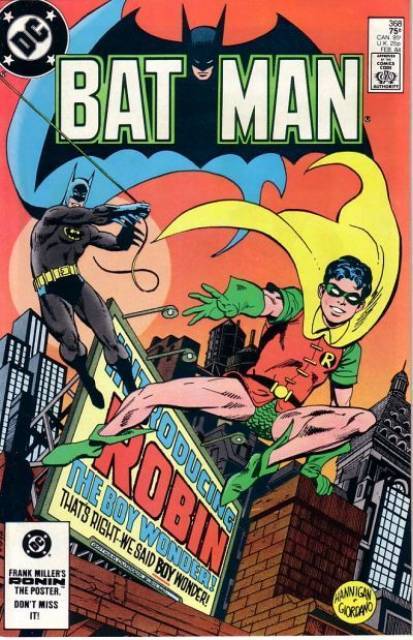
Of course, taking Dick Grayson out of the picture meantthere wasn’t going to be a Robin period, and the rejection of the fun Robinrepresented wasn’t complete enough to deny the value of his iconography, soalong comes Jason Todd, The Robin Who Makes Sense For Grim Batman once he getshis Post-Crisis origin. He’s got a dark backstory (one that even doesmarginally more than Dicks’ did to justify the conceit of Batman taking on ayoung aid - after all, if Jason wasn’t Robin he’d possibly be doomed to a lifeof crime), and a personality that lets him trade jokes with the bad guys inclassic Robin style, but as fueled by a rage at injustice that meant he didn’tcontrast that harshly with a post-Miller Batman. There’s a bit more of adeliberate contrast with how Batman himself functions - something that becomesimportant later - but it’s subdued in the face of Jason’s anger boiling over,until his presence becomes untenable both in-universe and among the fanbase,and what happens, happens. Because goodness knows that if there’s one thingBatman was lacking, it was a defining tragedy to motivate him to fight crime.
So you have a company that recognizes that Robin probablyshould be a thing, but their attempt at making him mesh with therough-and-tumble modern world of the 1980s failed so spectacularly that havinga child beaten to death by a clown was preferable to having to continue to putup with him. So they were going to have to work with something a little morefamiliar, while at the same time finding a whole new way to make the ideapalatable, especially now that the obvious dangers of bringing a powerless kidto fight supervillains were right at the front of everybody’s minds.
And that’s how you get the most important Robin story of alltime past his debut in A Lonely Place OfDying.

Not the best,mind you; later stories explored the idea introduced here in far moreinteresting ways. And for that matter, I’mon the record that Tim Drake is by far the least interesting Robin, ageneric grab-bag of traits from other characters who never remotely approachesthe sum of his parts (and that disappointing streak in fact starts right here,where the question of “how do you justifyendangering a child after what happened to Jason Todd?” is kicked under therug by having a new kid show up out of nowhere who happens to be amazing andperfect for the gig both physically and mentally). But what happens here iswhere the idea hinted at now and again in the likes of The Dark Knight Returns finally clicks into place, where Robinactually becomes Robin as we now know him with the idea that his contrast withBatman isn’t a bug, but a feature.
That’s what Robin brings to the table, retroactivelyexplaining why Dick worked and Jason didn’t, why he makes sense in Batman’sworld, and why Bruce in fact needs him: because there needs to be a light inthe dark, someone to remind Batman just what it is he’s fighting for and keephim from losing himself entirely to his mission. That Robin saves Batman justas much as the other way around, and that having a laughing young daredevil outthere alongside him will keep Batman’s head in the game, keep him alert andengaged and alive now that he has someone else to look out for. In short, Robinbeing around forces Batman to be an adult, rather than the kid still crying inthe alley all these years later. And in so doing, he has the chance to showthese kids a better way, just as he once found one. It’s a take that sticksright away, since that’s the contrast they went with a couple years later for Batman: The Animated Series, setting instone how those two related to each other in the public eye to the point whereit’s hard to remember it any other way (especially since flashbacks to Dick’s period as Robin now retroactively cast him as the upbeat good cop toBatman’s hardass).
It doesn’t quite hold in the comics among the creatorsthough, and the result was an odd period where things were thrown in twodirections at once; some writers it was becoming obvious actually did dislikeor even hate Robin, or at minimum had no use whatsoever for him, and he startedto get kicked to the side at every available opportunity since now not only washe silly on his own but he actively represented the idea that Batman shouldhimself lighten up. Others clearly started to like Robin as a figure more thanBatman himself, hence getting storieswhere it turned out Nightwing was called into Gotham on the night of Jason’sdebut so Bruce could rub it in his face that he was replaced, or Brucereplacing Tim with an inadequately-trained young woman who eventually gotkilled to try and bait him into resuming the role himself. And by the timethings returned to some sort of equilibrium, it was already just about time forthe next big shift.
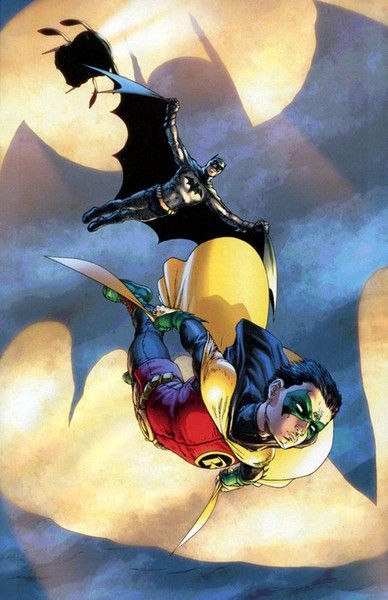
Finally, we come to the star of the show if we’re talkingabout how Robin works and where he stands today: Damian Wayne. The son of Batmanasopposed to the brother, and therefore probably why Bruce catastrophically fails at every turnwhen trying to raise him (outside maybe a few so-so Tomasi comics) - he’s acesat barking orders at partners, but not so much at emotionally connecting with achild who’s for a change actually immature compared to him, rather than beingnoticeably emotionally healthier. He couldn’t even properly help Jason; what hope didhe have at reaching a 10-year-old assassin raised from birth with the promisethat his destiny is to one day wreak bloody revolution and seize the world inhis grip? Bruce fights crime; what’s he going to do with a kid essentially raisedby the platonic concept of capital-C Crime? Hence why he’s not Bruce’s Robin, andnever really could be. Even if they could work together without findingthemselves at each other’s throats, it’d be two terse efficient warriors cooperatingsmoothly, with none of the spark that makes Batman and Robin thrive as apartnership in an emotional sense. He’s Dick’s.
He has to be Dick’s,because as Dick’s grown since his years in the speedo, through Nightwing toBatman and back again, he’s become the official adult in the room of the BatmanFamily (at least as far as the members in tights go). He’s the one who smiles,who has at least semi-stable relationships, who Bruce saved and who thereforegrew up not being afraid and vulnerable in the same way as him. And because ofthat he’s the one who’s able to talk with Damian as a human being to beunderstood and guided rather than an apprentice to be disciplined - just as hewas retroactively the one to make the effort to connect with Bruce, he’s ableto do the same thing here, except this time the power dynamic favors him - and becauseof that Damian eventually comes to understand there’s more to crimefightingthan punishing ‘degenerates’, but in protecting the innocent and serving ahigher ideal of justice. To the point where the privileged little brat whooriginally thought blood alone made him worthy of being Batman not only turnshis back on the crime that defined his life, but joins the Bat-Family inearnest by essentially orphaning himself with the rejection of hismother.
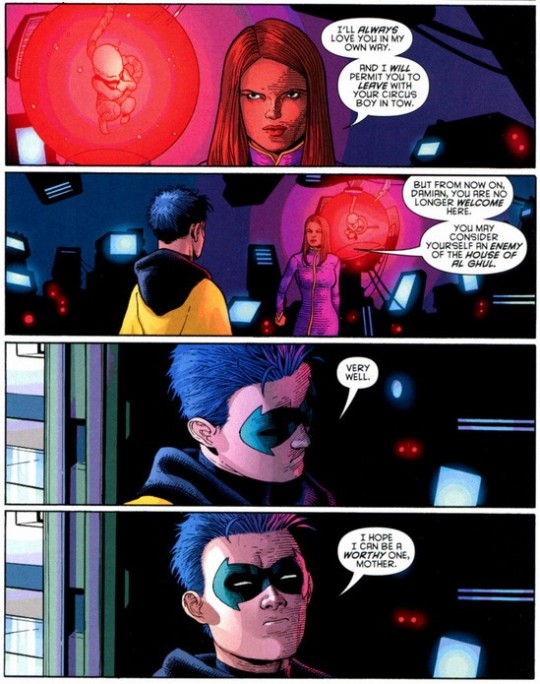
It’s the completion of a circle, where Dick proves hisworthiness as Batman by succeeding in saving Damian where Bruce failed to saveJason. They have the chemistry that defines Batman and Robin as a modernpartnership, able to bounce off each other with the wise snarking veteransuperhero always able to needle the self-important teen samurai billionaireuntil the kid comes out, whether to laugh along with him or show how deep hiswounds go. And the reason this truly works as a reconfiguration of the Batmanand Robin relationship rather than a new one altogether became clear in Nightwing Must Die!, where we see whatDamian brings to the table in turn: Dick as a well-adjusted person doesn’t havethe diamond-solid certainty in his identity or mission that Bruce did, butDamian most definitely does, and can bring the fire to Dick when he needs itthe way Dick could with Bruce. He’s the one who believes in Dick as Batman evenmore than he believes in Bruce. Hell, probably even more than Dick believes in Bruce.
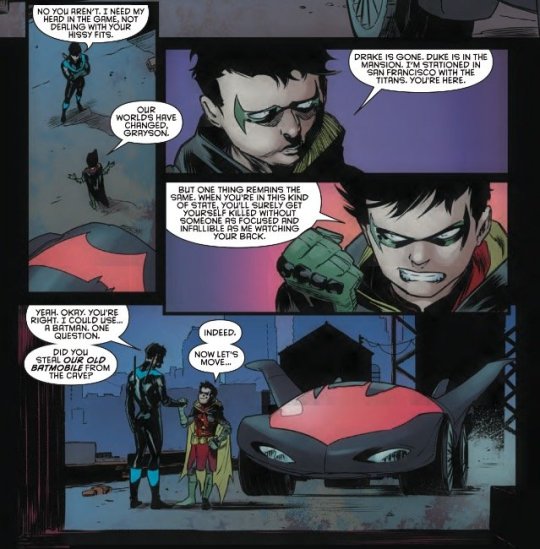
As is that’s the issue with Robin, at least as far as thecomics go - he’s not working with his partner, and you can’t especially shove himtogether with Bruce without either killing the drama or going endlessly back tothe “You’re not my real dad, man!” well (yetanother reason Dick should absolutely still be Co-Batman), and while he’s honestlya strong enough character to work on his own, that’s not his situation at themoment. Thankfully we’re still getting a pretty effective contrast with JonKent in Super Sons, along with whatever they’re doing in Teen Titans right now,but as Robin specifically rather than Damian Wayne he’s kind of inevitablysidelined until Dick either takes back the cape or just takes Robin as hissidekick even while he’s Nightwing. Bruce himself seems to have moved pastneeding a Robin truly all his own at the moment, instead cycling through thelikes of Bluebird and Signal and Gotham Girl. The honest answer to what Robinmeans in the DCU right now is probably “identitythat’s going to remain in a holding pattern until the DCEU Batman and Nightwingmovies come out, and then they’ll do whatever lines up with those”. So, uh,come back to me in 2019 or thereabouts. But on the whole? Batman and Robin arethere to save each other. It’s that simple.
182 notes
·
View notes
Text
11 Ways to Overcome Fear During a Crisis

July 30, 2020 12 min read
Opinions expressed by Entrepreneur contributors are their own.
When President Franklin Delano Roosevelt said, “We have nothing to fear but fear itself,” he wasn’t just making a catchy statement to gin up support for his policies. He was speaking to a nation struggling with what was just the beginning of what we now know as the Great Depression. The statement is not completely true since there are plenty of other things to fear, including sharks, taxes and global pandemics. But this much is an absolute fact — especially for entrepreneurs — fear can lead to unwise decisions, which can bring about the very negative consequences we wish to avoid. There is indeed much to fear about fear itself. Here are 11 ways to overcome fear during the current crisis or the next one you experience.
1. Name the fear
When faced with a crisis and paralyzing fear, the most difficult obstacle in your path may be admitting you are afraid. It’s only once we recognize the reality of the situation that we can deal with it.
One way to better identify your fear is to imagine the worst that can happen. In her New York Times bestseller Insight, author Tasha Eurich shares a recommendation made by decision psychologist Gary Klein, who advocates a “pre-mortem” for major decisions. The idea is to imagine yourself one year in the future and that everything has gone wrong. Your plans are a total disaster. Then write what that would look like. You might find out the worst that can happen isn’t all that bad, or that you can identify steps to avoid the pitfalls that would lead to disaster.
In Man’s Search for Meaning, Viktor Frankl quoted Spinoza’s Ethics, which said: “Emotion, which is suffering, ceases to be suffering as soon as we form a clear and precise picture of it.” Or to put it another way, Mr. Rogers said, “Anything that’s human is mentionable, and anything that is mentionable can be more manageable. When we can talk about our feelings, they become less overwhelming, less upsetting and less scary. The people we trust with that important talk can help us know that we are not alone.”
Dr. Benjamin Hardy, an organizational psychologist and the author of Personality Isn’t Permanent, shared these quotes with me and then told me, “The key to overcoming fear is giving it form.” Hardy says this can be done through journaling and open conversation. “Daily journaling about how you’re feeling, in addition to sharing your feelings with key people in your life, make your emotions manageable.”
Hardy says, “Does this take courage? Absolutely. But it’s worth it. It’s worth not being bogged down by fear and needless suffering. When you are open and honest as a person, life becomes far more manageable. You stop needlessly suffering internally about unfulfilled dreams or former hurts. You move forward. And that’s the freaking key! Moving forward! Moving forward as powerfully and authentically as possible.”
Related: 8 Powerful Phrases Leaders Need to Say in a Time of Crisis
2. Use fear to fuel your courage
The Japanese poet Kenji Miyazawa said, “We must embrace pain and consume it for fuel on our journey.” During a crisis, you may hear others say, “Nobody can get funded right now,” or “It’s time to survive, forget about growth.” Instead, entrepreneurs like Bryan Brandenburg, founder and chief scientist of visualization company Zenerchi, says, “That’s when I go into warrior mode. Don’t follow the conventional wisdom. It comes from people who are afraid to act or are acting from a place of fear. Instead, look for the opportunities caused by others’ fear.” Or, as Warren Buffet says about how to invest successfully, “Be fearful when others are greedy and be greedy only when others are fearful.”
3. Remember the past
When faced with a worrying future, it often pays to think about how we overcame challenges in the past. When thinking of what could be lost, Melinda Dransfield, VP of sales performance elevation for Prudential Retirement, asks, “Have I lost this or something like it before? How did I deal with it before?” and then reminds herself, “I have been through hard things before.”
I started my business in 1999, just before the dot-com bubble burst. Less than two years later, the economy went into another downturn after the 9/11 terrorist attacks. Then there was the 2008 real estate crisis. Now, whenever the business faces difficult circumstances, I tell myself, “You’ve been here before,” and even if I’m not sure exactly how, I know we’ll get through it.
4. Think past the crisis
Imagining a terrible future can help us avoid that future, but what if things work out great? In an April 2020 article in Harvard Business Review, Mark W. Johnson and Josh Suskewicz share perspectives from their book Lead from the Future. They say that though we must take care of the here and now, we can’t lose sight of the bigger picture. Whatever the future holds, they say, “You need to begin preparing for it now. And to do that right, you need to have a longer-term vision of what you aspire to become in five or even 10 years — a north star that will focus and help shape your thinking about the short- and mid-term.”
I’m reminded of how I learned to mow straight lines across a large lawn by focusing on a point in the distance, rather than the ground in front of me. Even if I ran into bumps along the way, as long as I kept my eye on that point, when I finished I could look back and see a straight path. Take care of the short term, but keep an eye on what’s to come or you’ll find it difficult to avoid getting pulled in multiple directions.
Related: You Can’t Do Everything, and If You Try to You’ll Do Even Less
5. Invest in “alive time”
Your business may not be in danger of going under, but perhaps you find yourself with a lot of spare time. Ryan Holiday, author of multiple bestselling books like The Obstacle Is the Way and Ego Is the Enemy, recalls advice he got about such times from another bestselling author, Robert Green (The 48 Laws of Power). “He told me there are two types of time: alive time and dead time,” Holiday wrote in a recent blog post. “One is when you sit around, when you wait until things happen to you. The other is when you are in control, when you make every second count, when you are learning and improving and growing.”
Could you use the extra time your business has to retool your systems, train your team, or build new products and services?
6. Build your fear muscle
Think of fear like gravity: With the proper equipment, it can help you become stronger. Noah Kagan, “Chief Sumo” at AppSumo.com, likes “the coffee challenge,” in which you ask for 10 percent off your next purchase. Awkward? Difficult? Scary? That’s the point. Do it repeatedly and it will get easier, not because the task itself is any easier, but because you’ve become stronger.
Jia Jiang took this to the ultimate level when he decided to intentionally get rejected 100 times in 100 days. He was inspired after his first attempt at entrepreneurship ended in rejection, leaving Jia emotionally crushed. However, after he recognized his fear of rejection was harming him more than the actual rejection, he decided to embrace rejection in order to become more comfortable with it. His experiences not only helped him become almost immune to rejection but also led to a TED talk on rejection that has been viewed over 6 million times and the bestselling book Rejection Proof.
7. Reevaluate what makes you unique
In a crisis, it’s easy to lose focus on your business and why it exists and instead get trapped into concerns about next week’s payroll. Of course, short-term concerns are important, but if we focus on them too much we may miss opportunities. “Get very clear on your point of view,” advises Steve Watt, VP of marketing at Grapevine6. “Figure out why (and for whom) your approach offers a way forward in difficult times.” You may have a new customer segment that suddenly cares about your company’s offering in a way they didn’t before.
That’s what happened to Zoom, the video conferencing service, in the early months of 2020. As the Covid-19 virus sent tens of millions of students and workers home, Zoom found itself perfectly positioned to help them stay connected. Through outreach (and a healthy dose of word of mouth) Zoom grew from 10 million to daily users in December 2019 to over 300 million daily users by April 2020.
In a crisis, you can combat fear as you find your new niche and let others know how you can solve their problems.
Related: How Entrepreneurs Can Find Clarity in Uncertain Times
8. Identify what you can — and can’t — control
“Fear isn’t bad. It’s the crippling uncertainty that comes with it that eats at us,” says Zachary Zimmerman, senior account manager at marketing agency agency Number Six. To combat that uncertainty, Zimmerman sorts out which aspects of a challenge he has control over and which he doesn’t. This reduces the uncertainty and allows him to focus on what he can change without wasting time on what he can’t.
9. See fear positively
Fear isn’t all bad — sometimes fear keeps us safe from real harm. Fear can also give us motivation. “Fear can be a very positive emotion when it sparks in us the behavior required to overcome, and when we are confident in where we are going,” says Andy Cindrich, senior consultant at FranklinCovey.
10. Find the opportunity
Marcus Sheridan’s experience shows why it’s so important to see every moment, even a crisis, as an opportunity. In 2008, the real estate crisis hit, and Sheridan was in the swimming pool business. Despite occupying a market in which many people were worried about losing their homes (not buying new pools), Sheridan saw that pool builders weren’t using the internet to answer buyers’ questions. He started answering those questions online, and his company’s website became the Wikipedia of swimming pool information. Now his company is the fastest growing fiberglass swimming pool manufacturer in the world.
“When Covid-19 hit and I realized that it was going to get ugly, once again my thoughts immediately shifted,” Sheridan says. “I told myself, ‘Marcus, commit now to find the opportunity in this moment.’”
In just a few months, Sheridan’s company introduced a virtual sales methodology to its team of dealers all over the country and experienced tremendous success. Despite the pandemic-related economic downturn, in April 2020 Sheridan’s company broke every sales record it has ever had.
Related: How Three Different Tech Companies Are Tackling the Common Fight Against Coronavirus
11. Don’t give up
As a senior sales executive, Hunter Sebresos was present for a meeting in which investors were preparing to shut down the company he was working for. However, he knew their customers had a need, so rather than throwing up his hands and trying to find a new job, he came up with a new business model on the spot, pitched it to the investors right then and there, and won funding to create Bacon, a mobile app that allows companies to post details about their temporary staffing jobs straight from their phones and quickly fill positions, rather than spending days or weeks with a staffing or temp agency.
Your company may be on the brink, but is there a way to pivot that gives you a second chance?
There is always hope
No matter how bad things get, there’s always hope for a better future. Even at the height of the Great Depression, the unemployment rate was 24.9 percent — alarming, but it means that 75.1 percent were still employed. Many of the greatest companies of all time were founded during times of great economic challenges. A short list includes Procter & Gamble, IBM, General Electric, General Motors, FedEx, Hyatt, IHOP, Disney, HP, Microsoft, Burger King, CNN and Apple (twice, first during the downturn in 1975, and then when it was resurrected from near-death during the dot-com crash of 2001).
There may be a global crisis right now, and there are certainly others brewing, but even in a crisis — especially during a crisis — there are people out there who need what you have, and there may be no better time to get busy giving it to them.
loading…

Website Design & SEO Delray Beach by DBL07.co
Delray Beach SEO
source http://www.scpie.org/11-ways-to-overcome-fear-during-a-crisis/
0 notes
Text
Hillary Clinton on where it all went wrong | The Sunday Times Magazine
The woman who lost to Donald Trump reflects on the failure of her presidential campaign and coping with crushing disappointment. Interview by Christina Lamb
First comes a man to switch the chairs. Then a young press officer to arrange their position. Two men in grey suits with tell-tale earpieces, the Secret Service, hover at the doorway. Stylists flit in, pleased the weather is overcast as it is “kind for photos”. It feels like the entourage of an ageing movie star or the forward party of an absolute monarch. “She’s just coming,” I am repeatedly told, followed by: “She’s held up.” I keep getting my notebook and tape recorder ready, to no avail. And then, when Hillary Clinton finally walks in, I am helping the photographer prepare his shot, crouching down pretending to be her and making angry and devastated faces; she did, after all, lose the election to a womaniser whose candidacy she considered a joke. Fortunately, she appears not to notice and immediately moves the chairs closer. “I feel like we’ve met,” she says, warmly. This is odd, as she is the one who is familiar, if a bit softer, blonder and bluer-eyed in person. At 69, she has been on the world stage my entire adult life. First lady, wronged wife, senator, secretary of state, first woman to run for president for a main party. Even her pantsuits are familiar; today she wears black trousers and a blue top as shiny as a Quality Street wrapper.
“I’ll bet you know more about my private life than you do about some of your closest friends,” she says in her new book. “You’ve read my emails, for heaven’s sake. What more do you need? What could I do to be ‘more real?’ Dance on a table? Swear a blue streak? Break down sobbing?”
That, of course, is exactly what I want as I wait in the hotel in Chappaqua, the small, leafy town north of New York that she and Bill call home. At the end of a nearby cul-de-sac stands their large white clapboard house, where she has been doing yoga (favourite position: Warrior II), praying and downing chardonnay to drown her sorrows. Today, it’s strictly iced tea (it’s not even midday) and she is so much nicer than that brittle woman on TV that it feels mean to ask her to relive her pain. Instead of cursing or sobbing, she is keen to discuss why child refugees are going missing in Europe, and the implications of last month’s Kurdish referendum.
We establish that we met in the bar of a hotel on a trip to South Korea in 2010 that included a visit to the demilitarised zone, where she was literally eyeball to eyeball with a soldier from the communist North standing outside the window. I was surprised then by how funny she was over gin and tonics.
Korea, of course, is very much in the news. The day before, the president had prompted gasps in his first speech to the annual UN general assembly in New York by threatening to “totally destroy North Korea” and taunting its leader, Kim Jong-un, as “Rocket Man”.
You must feel you should have been the one standing there, I say. Her smile is part-grimace. “Put aside what I would have said, how I would have conducted myself, I just found it hard to believe he was standing there as president and saying what he was saying,” she says. “It was a distressing speech — dark, dangerous, selfish, incoherent — and left as much room for misinterpretation and confusion as I ever heard in a speech by a president of the United States.”
She was particularly worried about Trump’s suggestion he would undo Barack Obama’s hard-won nuclear deal with Iran, which Trump derided as “an embarrassment to the United States”.
“They want to blow up the Iran nuclear deal just because we did it,” she says. “I think the Iran nuclear agreement was a stellar example of multinational co-operation, but more than that, it certainly put a lid on its nuclear programme. So when I hear President Trump talk in such a bellicose manner, threatening not just North Korea but Iran, it raises the potential you will have two extremely dangerous nuclear challenges in two regions of the world with unforeseen consequences, which will be horrible for people in those regions.”
Trump’s repeated use of the word “sovereignty” (21 times) in the speech and insistence that he would “always put America first” seemed intent on undoing all the effort she put in as secretary of state in the Obama administration to — as she sees it — restore the international reputation of the US after the damage caused by George W Bush’s War on Terror and the invasion of Iraq. “It’s not about me,” Clinton insists. “It’s about the message that sends to the world and what his priorities are, what he values and doesn’t.”
Of course, it is also about her. Rather than accept defeat and go quietly into the night, as many believed she should, she has written a 494-page angst-ridden book, titled What Happened. Though she laughs a lot in our interview, her bitterness resonates in every mention of the T-word — and there are many. A close female friend of hers tells me that “Hillary is utterly devastated”. “I have developed the hide of a rhinoceros,” Clinton insists to me, but I can’t imagine what it is like actually Being Hillary.
In the 1990s, she had to endure the whole world knowing about her president husband’s affair with the intern. Who can forget Monica Lewinsky’s semen-stained Gap dress? Then, when she contested the Democratic nomination in 2008, she had to watch the job go to the cool younger guy with far less experience. After that, she had to swallow her pride to work for him, which she did with great aplomb. Then, to run again and lose to a reality-TV host who boasted of sexual abuse, and tweets insults to everyone from the mayor of London to the Pope.
Clinton clearly can’t get her head round the fact that her fellow Americans voted for Trump rather than her own supremely qualified self. “I thought I’d be a damn good president,” she says. “I did not think I was going to lose.”
She admits she had prepared for her first 100 days with binders full of policies, and had written her victory speech, which she planned to give dressed in white, the colour of the suffragettes. Indeed, so confident was she that, as the results started coming in on election night, she went for a nap in her suite at New York’s Peninsula hotel. She woke before midnight to find husband Bill and her team ordering in whisky and ice cream for the shock, as the key states of Florida, North Carolina, Ohio and Iowa all fell to Trump. By 1.35am it was all over. The victory party was cancelled, the white suit packed away, and the specially built platform in the shape of the United States under a symbolic glass ceiling a terrible embarrassment.
Instead, she and Bill lay in bed staring at the ceiling. Does she still wake up every morning, wondering how it happened? “Yeah,” she replies. “I’m not living it every minute of every day, but every day I live it.”
Does she sometimes want to kick something? She laughs. “A friend gave me a little sign that says, ‘I do yoga, I meditate and I still want to kick somebody.’ I know that feeling.” It wasn’t just losing, she adds, but to whom. “It’s deeply troubling, because if I had lost to what I’d call a ‘normal Republican’, I would have disagreed with them — I had deep disagreements with George W Bush, but came to understand his worldview. I knew his father, I knew Reagan, I would have a lot of political differences, but I wouldn’t have felt the same sense of real loss for our country, that we elected someone who knows so little, cares even less and is just seeking the applause of the masses. I feel a terrible sense of responsibility for not having figured out how to defeat this person. There must have been a way and I didn’t find it.”
Instead, in the early hours of November 9, she made a concession telephone call that she describes as “one of the strangest moments of my life — weirdly ordinary, like calling a neighbour to say you can’t make his barbecue”.
After addressing shocked and tearful supporters the next day, she and Bill drove home in silence. Desperate for distraction, she decluttered all her wardrobes, arranged photographs in albums and remodelled the adjoining house they bought last year. In between, she went for walks with Bill and their dogs, read all the Elena Ferrante novels and went to weepy Broadway musicals such as Les Misérables.
But it was impossible to escape. Even the wallpaper in their bedroom, yellow with pastel flowers, was a copy of that in their old bedroom in the White House.
Then there was the inauguration that she and Bill were expected to attend as former president and first lady. Knowing the eyes of the world were on her, she steeled herself to “breathe out, scream later”, and tried to imagine she was in Bali.
Over and over, she asked herself “Why?”. Astonishingly it came down to just 77,744 votes out of 136m cast. “If just 40,000 people across Wisconsin, Michigan and Pennsylvania had changed their minds, I would have won,” she wrote.
“I thought, ‘I have to understand what happened,’ ” she tells me. “That’s why I wrote the book.”
Yet the writing process was so painful, she admits, that “at times I had to go and lie down”.
Shouldn’t she just accept defeat and shut up? She gives the very idea short shrift. “I am perfectly willing to take responsibility for all the shortcomings I can identify about myself and my campaign,” she says. “But that wasn’t the whole story. I’ve been in campaigns for decades, nobody runs a perfect campaign. People make gaffes, missteps ... This was of a different order in terms of forces at work and I think that’s one of the biggest threats to democracy.”
The “forces” blamed in the book include misogyny whipped up by Trump, the American electoral college system (which meant she got 3m more votes than Trump, yet still lost), the spreading of fake news through social media as well as other interference by the Russian president, Vladimir Putin, that she describes as “more serious than Watergate”. This includes Putin’s alleged involvement in the dumping of her emails by Julian Assange, the WikiLeaks founder.
Most of all, she blames the FBI director James Comey for firing off a letter to Congress just before the election — in which he revealed that the bureau had uncovered emails “pertinent” to a previously closed investigation into Clinton’s use of a private email address for classified information during her time as secretary of state. “What happened was almost a perfect storm,” she says. “I think I would have won without the Comey letter. I think the combination of the letter 11 days before the election, and what the Russians did weaponising WikiLeaks, raised enough doubts right at the end among a couple of tens of thousands of people in three states to vote differently.”
I point out that the former vice-president Joe Biden criticised her campaign for its lack of economic message, while Tony Blair said the anger that buoyed Trump “is not unjustified. You can’t just sit there and essentially blame the people.” They are not the only ones who accuse her of being elitist and out of touch.
“I knew that [anger] was out there,” she replies. “But I believed — and the popular vote proved it — more Americans agreed with the direction we were heading than not, and I believed Trump was temperamentally unprepared and unqualified to be president.
“I think there was lots of justified anger and distress over the financial collapse of 2007-2009,” she adds. “People’s savings were wiped out, they lost jobs and homes. But Barack Obama stabilised the markets and navigated us through it to the point that now incomes are beginning to rise and jobs are being created again.I don’t think Trump’s principal appeal is based on economic insecurity. It was a combination of playing on the fears of people who are worried about losing out in the future by fuelling sexism, racism and anti-immigrant feelings.
“The whole campaign he ran, from the very first day, was aimed at scapegoating. So if you are not in the place where you think you should be in society, that’s because someone else has taken it.”
In his campaign, Trump talked about how a victory for him would be “Brexit plus plus plus”. Did the British vote, less than five months earlier, not make her think that a similar populist earthquake was possible in the US? “Brexit should have been a bigger alarm than it was,” she admits. “It was some of the same people working for Trump, advocating for him. They thought, ‘Hey, we’ve got this figured out, just tell a really horrible lie over and over again, keep people off balance and make them think that this will, if not make their lives better, make them feel better.’ They voted against modern Britain and the EU, believing that somehow this would be good for their small village. It made no sense. The same thing played out in my race, but I didn’t think we were so vulnerable. But it turned out we were wrong — in part because the Russians played a much bigger role.”
By the “same people”, she particularly means Nigel Farage, the former Ukip leader, who was an enthusiastic advocate of Trump. Indeed, he was the first foreign politician to be received by Trump after his election. She speaks of Farage with disgust. “He came to the US to campaign for Trump and spent half of his remarks insulting me in a very personal way and talking about Trump as the alpha male, the silver-backed gorilla. Think of those images and what that says about what’s acceptable and what’s not.”
The real Bond villain in her book, however, is Putin, who she believes wants revenge for the collapse of the Soviet Union and the expansion of Nato. She also insists he has a personal grudge against her, describing him as “manspreading” in their meetings.
“US policy of the 1990s, to help democratise and protect former Soviet states, was something Russians didn’t like,” she says. “Putin said the collapse of the Soviet Union was the worst catastrophe in human history. But he never personally attacked my husband.
“There was that famous encounter Bush had with Putin when he said, ‘I can do business with him, I looked into his soul.’ I said, ‘He’s a KGB agent — by definition he doesn’t have a soul.’ So I sparred with him from a distance and as secretary of state. It was a personal grudge.”
To try to improve the situation, she says she would always go to meetings with Putin trying to find something they could actually engage on, but “as President Obama once said, [Putin] is like the bored guy in the back of the room”. She finally got his attention by asking him about wildlife conservation. “He came alive!” she recounts. “He takes me down the stairs — all of his security guys are jumping up, because we weren’t expected — into this inner sanctum with a huge desk and the biggest map of Russia and he started telling me he’s ‘going here to tag polar bears’. And then he says, ‘Would your husband like to come?’ I said, ‘Well, I’ll ask him, but if he’s busy, I’ll go!’ ”
The invitation never came. Instead, last October, the US government formally accused the Russian government of hacking the Democratic Party’s computer network, and said that Moscow was trying to “interfere” with the US election. Russia also used its own state-run media, such as RT and Sputnik, to generate anti-Clinton stories, as well as internet trolls to post fake stories on Facebook and other social media.
Last month, Facebook admitted that Russians had spent at least $100,000 on some 3,000 ads on US issues, posted on the site in the past two years. If people clicked, they received a stream of provocative news stories.
“No country has attacked the US with so few consequences,” Clinton writes. Should the Obama administration have done more, I ask. “Aagh,” she sighs, “that needs a whole other session.” She continues with a plea for the British authorities to investigate Cambridge Analytica, a behaviour-profiling company run by an old Etonian that reportedly received £5m from the Trump campaign to help swing voters.
“I hope the UK are investigating,” she says. “You know they were involved in the Kenya elections and Brexit, and are the subject of congressional and special counsel inquiries. The question to be asked is: how did they, the Russians and the Trump campaign converge?”
Grudges aside, what did Putin hope to achieve by supporting Trump? “I think it has exceeded his expectations — except for the unpredictability of it,” she replies. “He thought he was backing somebody who would immediately lift sanctions, be quiescent about Syria and Ukraine, and he’s got a lot of it.”
The Russians may have spread fake news, but why did so many Americans believe it? This, it seems, is the question that haunts her. One particularly improbable story that gained traction involved Clinton and her campaign chair, John Podesta, running a child-trafficking network from a pizzeria in Washington.
“Why would people believe that? Do they despise me and my politics so much that they are willing to believe the most horrible lie? How, in democracies like ours [can] people believe nonsense and lies on the side of buses about how much money the UK government paid to the EU? How did we let this happen?”
Clinton not only feels she inflicted Trump on the world, but that she let down women who had thought they were going to see America’s first female president.
Whatever you may think about Hillary, it was unedifying, to say the least, to see election rallies in the world’s most powerful nation chanting, “Kill the bitch!” How did that make her feel? “Sexism and misogyny are endemic in our society, so of course they are present in our politics,” she replies. “What I found so despicable was that it was stimulated by the candidate himself. In that campaign we had someone who advocated violence, who said all kinds of terrible things, who smirked at other terrible things. It was hard to believe it was happening.
“I got an honorary degree a few years ago from St Andrews in Scotland,” she continues, “and one of the other honourees was Mary Beard [the Cambridge classics professor]. She pointed out that some of the really horrible things people said about me harked back to ancient Greeks.” For example, the campaign mugs depicting Trump holding up Clinton’s severed head recalling Perseus holding up the head of Medusa.
“And Margaret Atwood, the author of The Handmaid’s Tale, told me it reminded her of puritan witch-hunts of the 17th century.”
In the book, she describes how it felt as Trump followed her around the stage in the second TV debate, two days after the release of a tape in which he bragged about groping women. “He was literally breathing down my neck,” she writes. “My skin crawled.”
“Trump was running a reality-TV campaign filled with personal attacks, giving people a great show,” she says. Yet people didn’t just watch it — they voted for him, women too. While Clinton won the vote of black, Latina and Asian women by large margins, 53% of white females preferred Trump. Was she surprised? “No, because these forces have been around my entire life. But both through legislation and broad consensus, starting in the 1960s, it became less and less acceptable in our politics to run on race or be overtly sexist. But that didn’t mean everyone agreed and all of a sudden became feminist and opened the circle of opportunity.”
This, she says, presents a huge challenge for any traditional politician. “When people come along and say we just have to figure out how to get along with voters who voted for Trump, I say, ‘At what cost? At the cost of turning our backs on refugees and immigrants? At the cost of permitting discrimination against blacks and women?’ No, that’s not an acceptable cost. How do we do a better job of conveying, instead, that we are going to grow opportunity in society, so more people can realise dreams? That has to be the message.”
She made that pitch, though, and it didn’t work. Has America now had enough of the Clintons? “I am not going anywhere, but will be active in politics, which I care deeply about.”
She is setting up an organisation to recruit and train young people — particularly women — to go into politics. “I will do not-for-profit work, working with universities and writing and speaking out [against] what I see as a global backlash against women’s progress.”
Nicola Sturgeon, first minister of Scotland, recently said: “Things that are seen as strengths in a man are seen as weaknesses in a woman.” Does Clinton agree? “I met Nicola this spring in New York and we had a great conversation,” she says. “There’s a commonality that exists among women who reach a certain level in politics.”
Has she met Theresa May? “No,” she simply says.
Do women lead in a different way? “I think I do. I am very comfortable in a more collegial way. I like to listen, I don’t like to brag or lie about what I can do, which I think put me at a disadvantage this time!”
After all she has endured, would she encourage her own daughter, Chelsea, to enter politics?
“I don’t ever think like that, because she is an independent, incredibly accomplished person. She has written a couple of very good books, I don’t think she’s at all interested in office.”
In the meantime, spending time with Chelsea and her two young children is one of the bonuses of losing. “Grandchildren are the best!” she exclaims.
Bill, she says, is a wonderful hands-on grandfather to Charlotte and Aidan. It’s an unexpected image — almost as unexpected as the affection with which she repeatedly refers to her husband throughout the interview. When I was a Washington correspondent in the Obama years, everyone told me the Clintons’ was a marriage on paper and the couple had struck a deal that she would stay with him in return for him helping her become president. She vehemently denies this, saying she is “fed up with people speculating on the state of my marriage”. In the book, she admits there were times she doubted its future, but she decided to stay with him because “I love him with my whole heart”.
Family aside, there’s always the chardonnay and a strange relaxation technique she describes as alternate nostril breathing.
It’s time for her photos, and what Clinton calls her “glam squad” appears to touch up her hair and make-up. She worked out she spent 600 hours — or 25 days — getting ready on the campaign trail. It’s not over. Next week she comes to the UK, where she will go to Swansea for the naming of a law school in her honour. “I am blessed with a strong constitution and am resilient,” she insists. “I am not going to spend the rest of my life looking backwards.”
The smile breaks and for a moment she looks as crestfallen as the 13-year-old Hillary who wrote to Nasa saying she wanted to be an astronaut. “Sorry, little girl,” came the response. “We don’t accept women into the space program.”
What Happened by Hillary Rodham Clinton (Simon & Schuster £20) is out now
Hillary Rodham Clinton makes exclusive UK appearances at both The Times and The Sunday Times Cheltenham Literature Festival and Southbank Centre’s London Literature Festival on Sunday 15 October
63 notes
·
View notes
Link



Archaeologists granted access to Japan's sacred tombs
“The opaque bureaucracy that runs the affairs of the imperial family - is unlikely to shed new light on the origins of what some believe is the world's oldest monarchy, for Japan's increasingly vocal ultra-right, even this modest concession is a step too far. They subscribe to the ancient myth that holds that Japan's emperors are the direct descendants of the sun goddess Amaterasu Omikami, and that the current monarch is the latest in an unbroken line of 125 emperors stretching back more than 2,600 years to Jimmu in the seventh century BC.”

“Although the wartime emperor, Hirohito, renounced his divine status after Japan's defeat in 1945, ultra-nationalists regard his son, the current emperor, Akihito, as a living god, and have issued death threats to archaeologists involved in previous attempts to gain access to the tombs.Their greatest fear is that proper inspections of the tombs will reveal compelling evidence that the Japanese imperial family originated from China and the Korean peninsula.”

“Akihito alluded to his Korean ancestry on his 68th birthday in 2001. In remarks that were ignored or played down by most of the domestic media, he said: "I for my part, feel a certain kinship with Korea, given the fact that it is recorded in the Chronicles of Japan that the mother of Emperor Kammu was of the line of King Muryong of Paekche."Kammu reigned from 781 to 806 AD while Muryong ruled the Paekche kingdom in Korea from 501 to 523 AD.”
(via Archaeologists granted access to Japan's sacred tombs | The Guardian)

Giru of Paekche
“Giru of Baekje ( 기루왕 ; died 128, r. 77–128) was the third king of Baekje, one of the Three Kingdoms of Korea.”
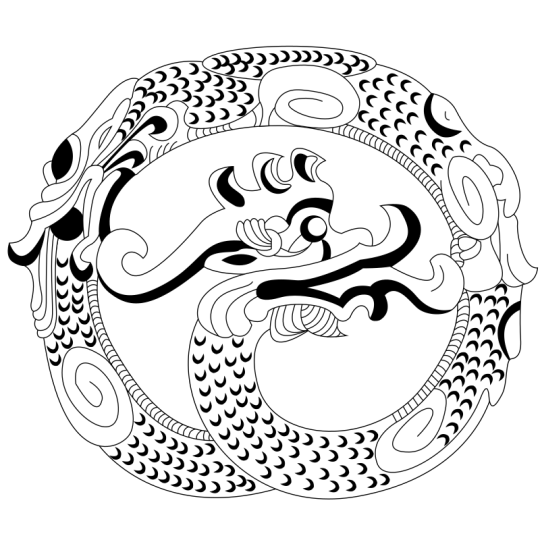
Muryong of Paekche
“Muryeong of Baekje (462–523, r. 501–23) was the 25th king of Baekje, one of the Three Kingdoms of Korea...According to the Shoku Nihongi, Emperor Kanmu's mother, Takano no Niigasa is a descendant of Prince Junda, son of Muryeong, who died in Japan in 513 (Nihon Shoki Chapter 17).”
Emperor Kanmu
“Emperor Kanmu (桓武天皇 Kanmu-tennō, 735– 9 April 806) was the 50th emperor of Japan, according to the traditional order of succession. Kanmu reigned from 781 to 806... According to the Shoku Nihongi (続日本紀), Yamabe's mother, Yamato no Niigasa (later called Takano no Niigasa), was a 10th generation descendant of Muryeong of Baekje.”

Kanpai! Sake through the ages
“The notable event of that time was the Kenmu Restoration, a doomed attempt by Emperor Go-Daigo in Kyoto, the ancient capital, to wrest real, as opposed to merely ceremonial, power from the Shogunate — the regime of military “eastern barbarians” in Kamakura.”

“Most amazing were the aspects of these men’s parties and meetings! In offering wine, they made no distinction of degree between the high and the low. Likewise, men cast off their caps and loosened their top hair, while monks showed their persons in white undergarments without their gowns. The wine was served by more than 20 maidens of 16 or 17 years, clear-skinned and superior in face and figure, through whose unlined robes of raw silk the snowy skin gleamed fresh as lotus blossoms...The guests sported and danced and recited verses. Yet all the while they took counsel together, how they might strike down the eastern barbarians.”

”‘There came over (to Japan)…a man who knew how to distil liquor,” another eighth-century chronicle, the “Kojiki,” tells us. The man was a Korean, Susukori by name.“So this Susukori distilled some great august liquor, and presented it to the heavenly sovereign” — the Emperor Ojin, roughly datable to the fourth century A.D.
Not much is known of Emperor Ojin (he is vaguely associated with an invasion of Korea), but evidently he knew how to enjoy himself. The “Nihon Shoki” records a subject people known as the Kuzu, mountain folk of the remote Kii Peninsula, coming to Ojin’s court to present “thick sake” and singing, “We have brewed the fine great liquor:/ See how good it is — / Come, partake, down it with joy,/ Our father.”

“The earliest sake was termed kuchikami no sake — literally, “chewing-in-the-mouth sake.” “This sake...was made by chewing rice, chestnuts or millet and then spitting the wad into a large wooden tub where it was allowed to brew for several days...only young virgins were allowed to chew the rice. These virgins were considered mediums of the gods, and the sake they produced was called bijinshu, or ‘beautiful woman sake.’ ” Refinement proceeded slowly, over centuries. Thick sake grew thinner, ultimately turning liquid. Black sake grew white and finally transparent.”
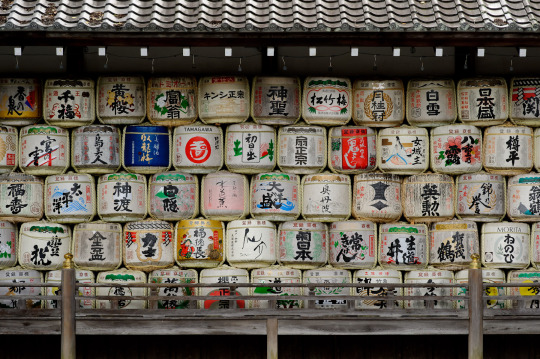
”Sake-brewing was Japan’s first commercial enterprise. Associated both in Heian times and before exclusively with shrine and court, it passed into entrepreneurial hands in the early years of the Kamakura Shogunate (1192-1333). That period is known mainly for inaugurating Japan’s stern military tradition, but it has another claim to fame: Its stable currency fostered a commercial spirit.”

“Descendants of the families that had run the sake brewery of the court...now sought permission from the new government to establish themselves as independent brewers, or formed guilds associating themselves with powerful temples and shrines and going into business under their protection.”
Fortunes were made. Warriors were not supposed to be drinkers, but they proved open to temptation after all. Kyoto culture, despised in the Kamakura Shogunate’s early years as effete, gradually took hold. Battle-hardened samurai became Kyotoized in spite of themselves. By the 14th century...there were 342 sake brewers in Kyoto alone, Kamakura being a prime market.”
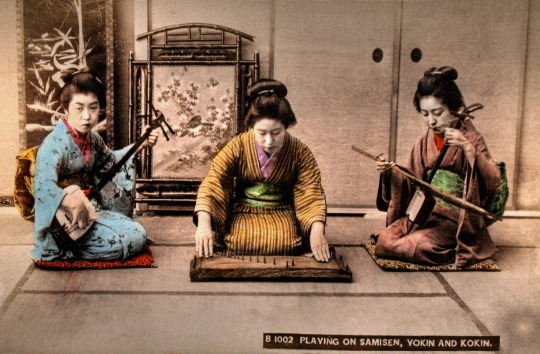
“The hostess and maids of the house receive you very hospitably and lead you to a room upstairs...Everything in the room makes you comfortable. A clever-looking maid comes up with a tea-set and serves tea and cakes, then asks you whether you want to take sake and some dishes, hire geisha and jesters...In another room the samisen is heard...Lots of sake and good food produce in the guest an amorous nature.
At the gate of a tea house...stood the funny but inevitable little Japanese girls, gaily bowing and smirking...asking the ‘honorable’ gentlemen to come in and rest and laugh and chaff with them and take just one cup of their ‘honorable’ tea. Tea in a modern Japanese tea house in these days of civilization means, I fear, whisky with or without water...Peach blossoms may surround it (the tea house), but the almond-eyed maidens are employed here to tempt the traveler to drink and romp.”
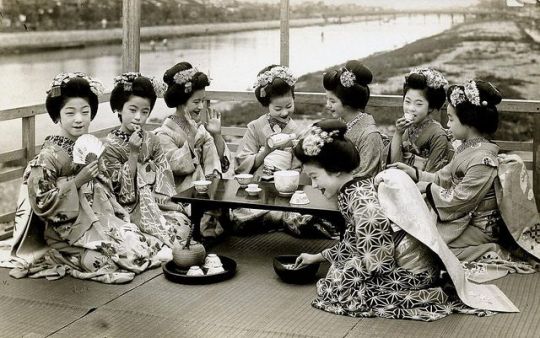
“For 1,000 years and more, “drinking” in Japan meant, almost exclusively, but not quite, drinking sake. The exception was shōchū...And so in the popular imagination if not quite in actual fact, “drinking” and “sake” were synonymous — until Japan’s mid-19th century opening to the West...What is indisputable is that the “soothing liquor, smiling liquor” celebrated all those misty ages ago by Emperor Ojin has been in sad popular decline ever since, though it’s said very lately to be on the cusp of a revival...businessmen were as likely to be drinking beer, wine or whisky as sake ”
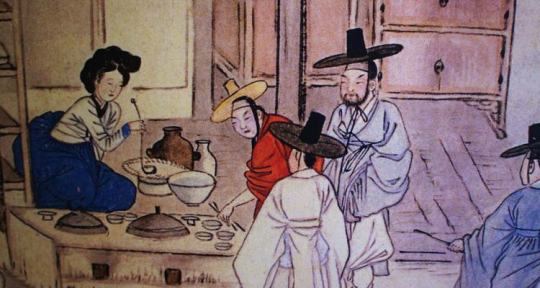
Soju: the most popular booze in the world
“There's a brand of one particular spirit that sells more than twice as much as any other in the world...soju, national hooch of South Korea. Jinro Soju – available at Waitrose and Amazon – has topped Drinks International's annual list of best-selling global spirits for years.
Soju now sells in 80 countries, with a rising profile helped by Korean superstar Psy, who not only proclaimed soju his "best friend" but also lent his dark-glassed visage to various campaigns to get the rest of the world smitten too. K-Pop K-Shot" billboards sprouted across America, showing Psy clutching a bottle of Chamisul soju (available via Beers of Europe).”

“In a country with the world's highest per capita alcohol consumption...soju takes a whopping 97% of the spirits market. But this is a drink embedded in Korean culture since the 14th century, when Mongol invaders taught the locals how to distill, with fermented rice as the traditional starter.”
(via Soju: the most popular booze in the world | The Guardian)


The Story Behind Kirin Beer Labels
“The kirin depicted on Kirin Beer labels is a legendary creature derived from ancient Chinese myths and is said to be a harbinger of good luck...When Kirin Beer first came out in 1888, beers imported to Japan had labels that featured animals such as cats and goats. Japan Brewery Co., Ltd.—the forerunner of Kirin Brewery—chose also to use an animal as the central theme for its beer label.
A close-up of Kirin Beer labels from 1933 to the present day reveals that the three tiny Japanese kana letters for "ki," "ri" and "n" are embedded in the mane of the kirin depicted in these labels. We do not know exactly why this started: Some say the graphic designer who created the original 1933 label may have simply added an amusing touch to the design, while others claim it was an attempt to prevent forgery of the labels.
(via The Story Behind Kirin Beer Labels | Kirin)

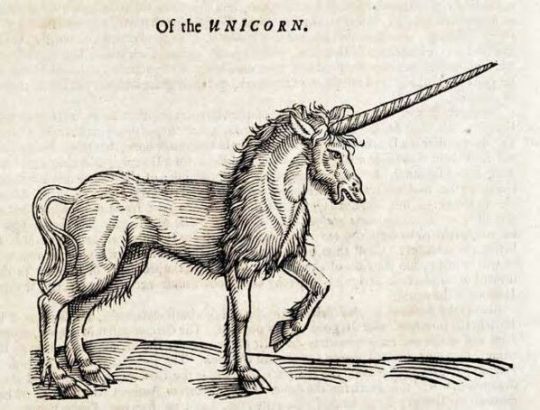
Kiringul
“Kiringul (Korean: 기린굴; "Kirin's Grotto") is a cave in North Korea said to have been the home of the kirin, a mythological chimeric beast that was reputedly ridden by King Dongmyeong of Goguryeo in the 1st century BC...kirin (or qilin), a mythological chimera-like beast with "the body of a deer, the tail of a cow, hooves and a mane", as well as a single horn on its head. The creature was said to have been King Dongmyeong's favourite means of transport. The place in question is called Kiringul or "Kirin's Grotto". Despite the name, it was not literally supposed to have been a place where kirins lived, but was instead a mythical name akin to the Giant's Causeway in Northern Ireland.”

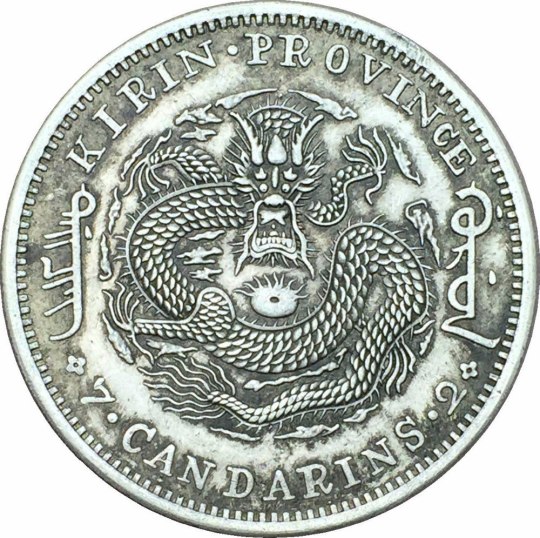
Coin from Kirin Province, Manchuria (1901)
Jilin
“Jilin (吉林; 기린; formerly romanised as Kirin)...The name "Jilin" – which literally translates to "Auspicious Forest" – originates from girin ula ᡤᡳᡵᡳᠨ ᡠᠯᠠ, a Manchu phrase meaning "along the river". This would have been transcribed into jilin wula (t 吉林烏拉, s 吉林乌拉) in Chinese, then shortened to "Jilin."


Anti-Manchuism
“In 1911 Xinhai revolutionaries proclaimed that Han and Muslims were equal, but deliberately left out the Manchus in the original proclamation, and thus "can be seen as sanctioning" the massacre of Manchus in Xi'an.[1] The Muslims, led by Ma Anliang and Ma Qi proceeded to ignore the proclamation, and continued to fight for Qing against the revolutionaries. After the Manchu men in Xi'an were all killed, the Chinese Muslims rescued attractive Manchu girls and converted them into Muslims.”
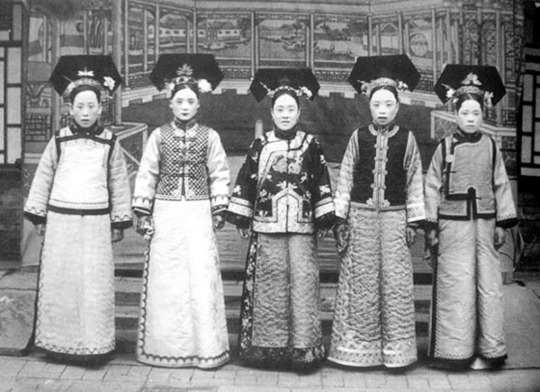
How Beijing Turned Koreans Into Chinese
“Of the approximately two million Chinese Koreans living in China, about half reside in Jilin Province, one of the country’s three northeastern provinces...Given such a strong Korean influence on the region, it may seem logical that of Jilin’s ethnic Korean population many (if not most) would identify with one or both of the Koreas...to the youngest generation. For them, the contemporary connection with South Korea is little more than functional, while that with North Korea barely exists at all.
Having grown up in the era of China’s rise, at a time when the Chinese Communist Party (CCP) has shown very little practical interest in the preservation of ethnic minority cultures and devoted a great deal of attention to forging some kind of “unified” Chinese identity, today’s youth of Yanbian identify as resolutely Chinese.”

“The government was in no mood to let a surfeit of independent spirit get in the way of the country’s trajectory, and this — coupled with the disintegration of the Soviet Union — necessitated a recalibration of national policy toward ethnic minority education. The impact was readily felt. In 1990 there were 1,106 Korean elementary schools in the Yanbian autonomous region, but this was down to just 138 by 1999 and 31 another decade after that...The same pattern has been repeated — and amplified — elsewhere in Jilin. In 1991, 26 Korean middle schools were in Liuhe County, an administrative district of the industrial city of Tonghua in the west of the province, but by 2011 there remained only one.”

“The reasons for the dominance of Chinese-language education among Chinese Korean youth, a local university professor informed us during our recent visit to the region, are twofold: First, sustained economic growth and development has altered perceptions of the Chinese state and what it means to be Chinese today. While political challenges to the CCP’s right to rule exist, economic opportunity for those who more fully assimilate, reinforced by a sense of pride in being Chinese, means more people (parents prominent among them) are willing to buy in. And second, in part a response to the challenges facing the Party today, the CCP has changed its nation-building strategy. Whereas in the past it was possible to be Chinese and ethnically Korean, today one is expected to be thoroughly Chinese.
Taken together, this provides a powerful explanation for not only the decline of Korean-language education and Korean ethnic consciousness, but also the success of Chinese nation-building.”
(via How Beijing Turned Koreans Into Chinese | The Diplomat)

Ethnic Koreans in China not bound to N.Korea
“China quite possibly fears that some Korean government might one day lay claim to the area that encompasses the Yanbian Autonomous Region (YAR.) Recall that there have always been Koreans there, and the area is now home to an estimated 2 million ethnic Koreans. China has no wish to see an increased sense of nationalism among them. This is a major reason why China does not want defectors from North Korea that might ignite any latent feelings of irredentism and nationalism in the ethnic population of its northeast provinces.
The younger ethnic Koreans in the YAR are undoubtedly aware of the differences between the two countries, and they can easily see that their future is brighter in China than it would be in North Korea...The point here isn’t that ethnic Koreans in China would likely prefer to remain as Chinese citizens in China rather than return to the chaos of North Korea. Ethnic Koreans do indeed know that North Korea is a failed state, that they have far more freedom in China and that they enjoy a better standard of living in the YAR than the average citizen in North Korea.”
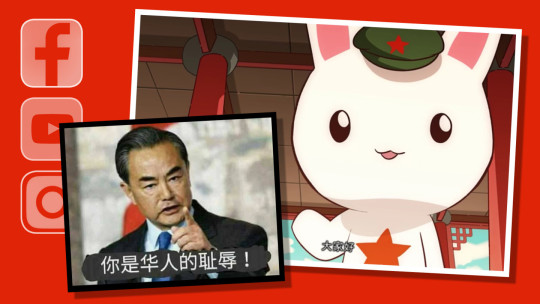
”Many ethnic Koreans in the YAR, in the event of a collapsing North Korea, would likely see excellent opportunities – the real draw being South Korea with its bustling cities, readily available consumer goods of high quality, astonishing personal freedoms – and ways to make money. To be sure, those former “exiles” and their descendants certainly realize that their homeland culture has transformed radically since they were last in Korea.
Nonetheless, culture and heritage are important in Asia and that, along with the shared historical ancestry, could exert a powerful pull, particularly if older generation ethnic Koreans consider returning to the peninsula. If nothing else, ethnic Koreans with their intimate knowledge of China would likely see great opportunities in which they can play significant roles as South Korea grows its trade with its larger neighbor.”
(via Ethnic Koreans in China not bound to N.Korea | NK News)

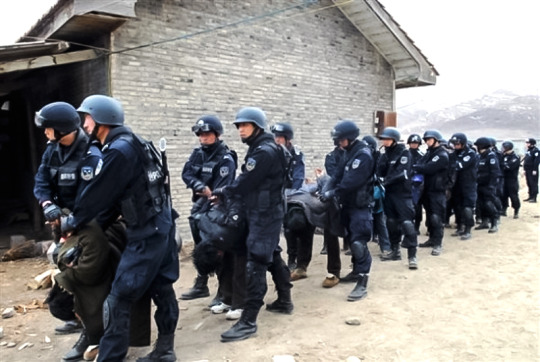
Ethnic cleansing makes a comeback — in China
“Since last year, hundreds of thousands — and perhaps millions — of innocent Uighurs and other ethnic minorities in the Xinjiang region in northwest China have been unjustly arrested and imprisoned in what the Chinese government calls “political re-education camps.” Thousands have disappeared. There are credible reports of torture and death among the prisoners. The government says it is fighting “terrorism” and “religious extremism.” Uighurs say they are resisting a campaign to crush religious and cultural freedom in China. The international community has largely reacted with silence.
Horrific as they are, the camps constitute just one part of Beijing’s effort. The government has destroyed thousands of religious buildings. It has banned long beards and many Muslim names. People are forced to eat pork against their beliefs. The Chinese government’s persecution of innocents continues even after their death. Crematoria are being built to literally extinguish the Uighur funeral tradition, which insists on burials.”

“Add to that the unprecedented security and surveillance state in Xinjiang, which includes all-encompassing monitoring based on identity cards, checkpoints, facial recognition and the collection of DNA from millions of individuals. The authorities feed all this data into an artificial-intelligence machine that rates people’s loyalty to the Communist Party in order to control every aspect of their lives.”
If that doesn’t bother you, consider that this draconian expansion of Chinese repression is being exported to the United States and around the world. Families of U.S. citizens who speak out against Beijing are targeted as part of Beijing’s effort to snuff out all international criticism.”

“Despite Beijing’s efforts, mounting evidence of the camps has managed to make its way to the outside world. Massive camp construction can be seen from satellites, and advertisements for new construction contracts are publicly available. Witnesses have told their stories. Yet the world has failed to respond...The Chinese government is attempting to “Sinocise religion” and “transform religion and ethnicity in Chinese society” in a scheme more ambitious than Mao’s Cultural Revolution...“The scope of this campaign is breathtaking.”
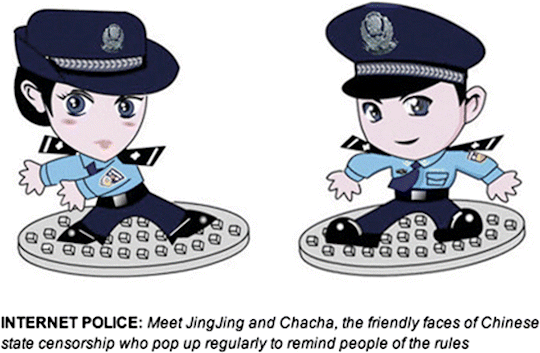
“The Chinese government’s obsession with its international reputation is its main vulnerability. Calling out these atrocities in public and to Beijing directly is key. The horror in Xinjiang is not a China issue, it’s a global issue. China uses its position on the U.N. Human Rights Council and the U.N. Security Council not only to stifle discussion of its actions but also to attempt to rewrite international human rights norms to allow expansion of these practices by any dictatorship with the means.”
(via Ethnic cleansing makes a comeback — in China | The Washington Post)
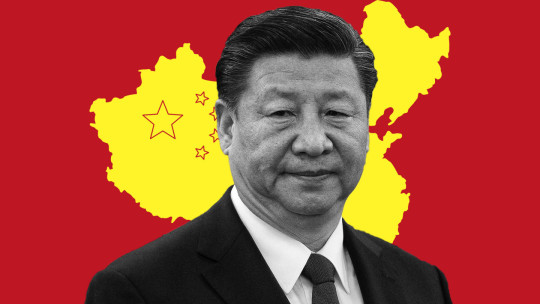
#nihonshu#kamakurashogunate#kyotoemperor#sake#kiipeninsula#shochu#soju#kpop#kirinbrewery#kirin#kiringul#qilin#unicorn#uighur#manchu#tibetan#korean#ethniccleansing#forcedintermarriage#hanchinesemen#40millionextrachinesemen#worldwidechineseinternetcensorship#communistdictatorship
0 notes
Text
11 Ways to Overcome Fear During a Crisis
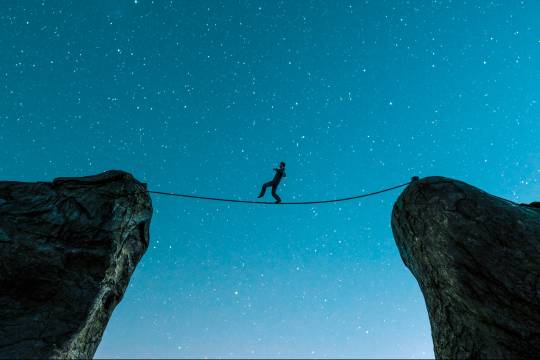
July 30, 2020 12 min read
Opinions expressed by Entrepreneur contributors are their own.
When President Franklin Delano Roosevelt said, “We have nothing to fear but fear itself,” he wasn’t just making a catchy statement to gin up support for his policies. He was speaking to a nation struggling with what was just the beginning of what we now know as the Great Depression. The statement is not completely true since there are plenty of other things to fear, including sharks, taxes and global pandemics. But this much is an absolute fact — especially for entrepreneurs — fear can lead to unwise decisions, which can bring about the very negative consequences we wish to avoid. There is indeed much to fear about fear itself. Here are 11 ways to overcome fear during the current crisis or the next one you experience.
1. Name the fear
When faced with a crisis and paralyzing fear, the most difficult obstacle in your path may be admitting you are afraid. It’s only once we recognize the reality of the situation that we can deal with it.
One way to better identify your fear is to imagine the worst that can happen. In her New York Times bestseller Insight, author Tasha Eurich shares a recommendation made by decision psychologist Gary Klein, who advocates a “pre-mortem” for major decisions. The idea is to imagine yourself one year in the future and that everything has gone wrong. Your plans are a total disaster. Then write what that would look like. You might find out the worst that can happen isn’t all that bad, or that you can identify steps to avoid the pitfalls that would lead to disaster.
In Man’s Search for Meaning, Viktor Frankl quoted Spinoza’s Ethics, which said: “Emotion, which is suffering, ceases to be suffering as soon as we form a clear and precise picture of it.” Or to put it another way, Mr. Rogers said, “Anything that’s human is mentionable, and anything that is mentionable can be more manageable. When we can talk about our feelings, they become less overwhelming, less upsetting and less scary. The people we trust with that important talk can help us know that we are not alone.”
Dr. Benjamin Hardy, an organizational psychologist and the author of Personality Isn’t Permanent, shared these quotes with me and then told me, “The key to overcoming fear is giving it form.” Hardy says this can be done through journaling and open conversation. “Daily journaling about how you’re feeling, in addition to sharing your feelings with key people in your life, make your emotions manageable.”
Hardy says, “Does this take courage? Absolutely. But it’s worth it. It’s worth not being bogged down by fear and needless suffering. When you are open and honest as a person, life becomes far more manageable. You stop needlessly suffering internally about unfulfilled dreams or former hurts. You move forward. And that’s the freaking key! Moving forward! Moving forward as powerfully and authentically as possible.”
Related: 8 Powerful Phrases Leaders Need to Say in a Time of Crisis
2. Use fear to fuel your courage
The Japanese poet Kenji Miyazawa said, “We must embrace pain and consume it for fuel on our journey.” During a crisis, you may hear others say, “Nobody can get funded right now,” or “It’s time to survive, forget about growth.” Instead, entrepreneurs like Bryan Brandenburg, founder and chief scientist of visualization company Zenerchi, says, “That’s when I go into warrior mode. Don’t follow the conventional wisdom. It comes from people who are afraid to act or are acting from a place of fear. Instead, look for the opportunities caused by others’ fear.” Or, as Warren Buffet says about how to invest successfully, “Be fearful when others are greedy and be greedy only when others are fearful.”
3. Remember the past
When faced with a worrying future, it often pays to think about how we overcame challenges in the past. When thinking of what could be lost, Melinda Dransfield, VP of sales performance elevation for Prudential Retirement, asks, “Have I lost this or something like it before? How did I deal with it before?” and then reminds herself, “I have been through hard things before.”
I started my business in 1999, just before the dot-com bubble burst. Less than two years later, the economy went into another downturn after the 9/11 terrorist attacks. Then there was the 2008 real estate crisis. Now, whenever the business faces difficult circumstances, I tell myself, “You’ve been here before,” and even if I’m not sure exactly how, I know we’ll get through it.
4. Think past the crisis
Imagining a terrible future can help us avoid that future, but what if things work out great? In an April 2020 article in Harvard Business Review, Mark W. Johnson and Josh Suskewicz share perspectives from their book Lead from the Future. They say that though we must take care of the here and now, we can’t lose sight of the bigger picture. Whatever the future holds, they say, “You need to begin preparing for it now. And to do that right, you need to have a longer-term vision of what you aspire to become in five or even 10 years — a north star that will focus and help shape your thinking about the short- and mid-term.”
I’m reminded of how I learned to mow straight lines across a large lawn by focusing on a point in the distance, rather than the ground in front of me. Even if I ran into bumps along the way, as long as I kept my eye on that point, when I finished I could look back and see a straight path. Take care of the short term, but keep an eye on what’s to come or you’ll find it difficult to avoid getting pulled in multiple directions.
Related: You Can’t Do Everything, and If You Try to You’ll Do Even Less
5. Invest in “alive time”
Your business may not be in danger of going under, but perhaps you find yourself with a lot of spare time. Ryan Holiday, author of multiple bestselling books like The Obstacle Is the Way and Ego Is the Enemy, recalls advice he got about such times from another bestselling author, Robert Green (The 48 Laws of Power). “He told me there are two types of time: alive time and dead time,” Holiday wrote in a recent blog post. “One is when you sit around, when you wait until things happen to you. The other is when you are in control, when you make every second count, when you are learning and improving and growing.”
Could you use the extra time your business has to retool your systems, train your team, or build new products and services?
6. Build your fear muscle
Think of fear like gravity: With the proper equipment, it can help you become stronger. Noah Kagan, “Chief Sumo” at AppSumo.com, likes “the coffee challenge,” in which you ask for 10 percent off your next purchase. Awkward? Difficult? Scary? That’s the point. Do it repeatedly and it will get easier, not because the task itself is any easier, but because you’ve become stronger.
Jia Jiang took this to the ultimate level when he decided to intentionally get rejected 100 times in 100 days. He was inspired after his first attempt at entrepreneurship ended in rejection, leaving Jia emotionally crushed. However, after he recognized his fear of rejection was harming him more than the actual rejection, he decided to embrace rejection in order to become more comfortable with it. His experiences not only helped him become almost immune to rejection but also led to a TED talk on rejection that has been viewed over 6 million times and the bestselling book Rejection Proof.
7. Reevaluate what makes you unique
In a crisis, it’s easy to lose focus on your business and why it exists and instead get trapped into concerns about next week’s payroll. Of course, short-term concerns are important, but if we focus on them too much we may miss opportunities. “Get very clear on your point of view,” advises Steve Watt, VP of marketing at Grapevine6. “Figure out why (and for whom) your approach offers a way forward in difficult times.” You may have a new customer segment that suddenly cares about your company’s offering in a way they didn’t before.
That’s what happened to Zoom, the video conferencing service, in the early months of 2020. As the Covid-19 virus sent tens of millions of students and workers home, Zoom found itself perfectly positioned to help them stay connected. Through outreach (and a healthy dose of word of mouth) Zoom grew from 10 million to daily users in December 2019 to over 300 million daily users by April 2020.
In a crisis, you can combat fear as you find your new niche and let others know how you can solve their problems.
Related: How Entrepreneurs Can Find Clarity in Uncertain Times
8. Identify what you can — and can’t — control
“Fear isn’t bad. It’s the crippling uncertainty that comes with it that eats at us,” says Zachary Zimmerman, senior account manager at marketing agency agency Number Six. To combat that uncertainty, Zimmerman sorts out which aspects of a challenge he has control over and which he doesn’t. This reduces the uncertainty and allows him to focus on what he can change without wasting time on what he can’t.
9. See fear positively
Fear isn’t all bad — sometimes fear keeps us safe from real harm. Fear can also give us motivation. “Fear can be a very positive emotion when it sparks in us the behavior required to overcome, and when we are confident in where we are going,” says Andy Cindrich, senior consultant at FranklinCovey.
10. Find the opportunity
Marcus Sheridan’s experience shows why it’s so important to see every moment, even a crisis, as an opportunity. In 2008, the real estate crisis hit, and Sheridan was in the swimming pool business. Despite occupying a market in which many people were worried about losing their homes (not buying new pools), Sheridan saw that pool builders weren’t using the internet to answer buyers’ questions. He started answering those questions online, and his company’s website became the Wikipedia of swimming pool information. Now his company is the fastest growing fiberglass swimming pool manufacturer in the world.
“When Covid-19 hit and I realized that it was going to get ugly, once again my thoughts immediately shifted,” Sheridan says. “I told myself, ‘Marcus, commit now to find the opportunity in this moment.’”
In just a few months, Sheridan’s company introduced a virtual sales methodology to its team of dealers all over the country and experienced tremendous success. Despite the pandemic-related economic downturn, in April 2020 Sheridan’s company broke every sales record it has ever had.
Related: How Three Different Tech Companies Are Tackling the Common Fight Against Coronavirus
11. Don’t give up
As a senior sales executive, Hunter Sebresos was present for a meeting in which investors were preparing to shut down the company he was working for. However, he knew their customers had a need, so rather than throwing up his hands and trying to find a new job, he came up with a new business model on the spot, pitched it to the investors right then and there, and won funding to create Bacon, a mobile app that allows companies to post details about their temporary staffing jobs straight from their phones and quickly fill positions, rather than spending days or weeks with a staffing or temp agency.
Your company may be on the brink, but is there a way to pivot that gives you a second chance?
There is always hope
No matter how bad things get, there’s always hope for a better future. Even at the height of the Great Depression, the unemployment rate was 24.9 percent — alarming, but it means that 75.1 percent were still employed. Many of the greatest companies of all time were founded during times of great economic challenges. A short list includes Procter & Gamble, IBM, General Electric, General Motors, FedEx, Hyatt, IHOP, Disney, HP, Microsoft, Burger King, CNN and Apple (twice, first during the downturn in 1975, and then when it was resurrected from near-death during the dot-com crash of 2001).
There may be a global crisis right now, and there are certainly others brewing, but even in a crisis — especially during a crisis — there are people out there who need what you have, and there may be no better time to get busy giving it to them.
loading…

Website Design & SEO Delray Beach by DBL07.co
Delray Beach SEO
source http://www.scpie.org/11-ways-to-overcome-fear-during-a-crisis/
source https://scpie.tumblr.com/post/625136102521651201
0 notes
Text
Vision
My mom, a self-proclaimed social justice warrior, went into labor in the middle of The Million Man March on October 16th, 1995. Unable (and possibly unwilling) to leave she stayed in totality, calling my dad hours into labor to tell him to meet her at the Washington Hospital Center.
My sister's names are Nyah and Taylur. Nyah is named after a character in Mission Impossible and Taylur is named after my third-grade bully. My dad and stepmom gave me the ability to name my second sister but I wasn’t happy with how the first one turned out and wasn't looking forward to another. Therefore, I named her after the only enemy I had at 8 years old.
I have had one stepmom and three stepdads. My favorite stepdad's name is Kenny. He helped me learn how to fix my car, pitch a tent, and still sends me birthday money. My mom and Kenny separated three years ago. Sabrina, my stepmom, has been married to my dad since I was 3. She is the most religious person in my life. She is hesitant to be authoritarian in my life however she has always been firm in my going to church.
I had three options in going to undergrad: Howard University, Louisiana State University, and George Mason University. I hated all of my options at the time but picked George Mason University. I had a good 4-year experience but would approach the application process for undergrad differently a second time around. I joined a sorority. Going greek both matches and clashes with my personality. I quickly became a leader in my chapter and loved having a say in the comings and goings of a small 100+ army of young women. However, working cohesively with a small 100+ army of young women can be exhausting just as much as it is exhilarating.
When I was in high school I was bullied from middle through high school. To combat this my mom sent me to a leadership camp called the National Student Leadership Conference (NSLC). It was only a 9-day program but I have since worked for that same organization and it has become a big part of my life.
However this summer I hated my boss. He was manipulative and phony. I never knew what he was thinking and it threw me off from the first day. He would talk about people behind their backs and then smile to their faces. I hated it. But the organization is my favorite and something I want to grow in but it sucks because now I have to grow in it alongside him. So not only do I hate him, I can’t get away from him either.
Although I named my sister after my third-grade bully, my true arch nemesis from my youth was Rachel Fox. She lived directly behind me and made my life hell in the 7th grade. I was scared of her and she knew it but in true teen girl fashion, I called her my friend. Our “friendship” climaxed when she pushed me down an icy flight of stairs and my mom threatened to call the police. Unrelated to the stairs, she is in jail now.
The most at stake for me in my youth was my self-esteem. I wasn’t comfortable in who I was and felt out of place no matter where I went. There isn’t a cure-all for feeling unwanted, unfortunately. I was awkward and thankfully awkward becomes quirky when you hit your twenties. I am trying my best but sometimes that low self-esteem creeps back in. I have a feel-good folder full of reasons I should be happy. It's incredibly cheesy but it works. It includes pictures and letters from friends. I started compiling it in high school and its worked thus far.
My parents separated before I was born and they have been bickering since. Stories of my childhood are always hazy because they come from two very different yet skewed perspectives. I spent equal amounts of time in each household. I feel that I am an equal dose of each of my parents. One part cynical from my dad, one part hippie from my mom. They are both abrasive, a trait that seemingly skipped me. I feel laid back and I often lack the bark necessary to stand up for yourself. I have to quite literally give myself a pep talk to talk in public spaces sometimes. But then on the other hand sometimes my mouth won’t shut. Sometimes I like to identify which traits belong to my mother and which traits belong to my father. After accomplishing something socially bold I’ll think, “That was a Kim trait,” and then after doing something mildly offensive but career progressive I’ll think,” How Keith of me.” Is that weird? Awkward? Quirky?
I once studied abroad in Ireland for one month. I hated it. It rains all the time, and there aren’t many people of color, which isn’t new to me but the Irish like to ask you about being black. It’s a hefty conversation to have with a total stranger but to each their own. I was taking a class in creative writing while there and when I was in class I was thriving. Other parts? Not quite. My class was made of students from my undergrad and each of them had such bold personalities I feel confident that I could create hundreds of characters stemming from them alone. One girl ran off with the bartender at our hotel during the first night and another was in color guard but insisted on practicing in public places and during our tours; This same girl also owned a wolf. Not a necessary fact overall but occasionally I scroll past her and her wolf on social media and still jump at the idea.
On my 10th birthday, my mom drove me all the way to my dads, two hours away to celebrate and he never showed up. He later told me that I never got back to him if I wanted to have a party. Most 9-year-olds have terrible phone etiquette so I am not surprised. I sobbed the whole ride back. So loudly that I didn't hear my mom planning an impromptu party in the front seat. She invited a fury of people. Anyone who would come and was available: Our landscaper, my Sunday School teacher, and our hairdresser. The party included pinning the tail on the donkey, cake, and even goody bags. I have zero clues how she put together a good time in such a short time. I rarely ask because when I do I can’t help but remember that on the flip side my dad ditched me.
I recently watched a Netflix movie called To All The Boys I Loved Before where the main character writes love letters to her crushes. Of course, this launched me into wondering who I’d write my own love letters too and I can narrow it down to three truly significant romantic loves. One was in high school, one in college, and one this summer. All three were relatively significant in my life, however, I still feel weird saying it aloud. I’ve learned that I fall in love easily. If you’re looking to satisfy someone with the bare minimum? I’m your girl. I learned that I am forgiving in all the wrong ways. I am not quick to forget the shortcomings of my loved ones but more so unwilling to have the hard talks that come with addressing them. It could be that I am still coming down from the cheesy fumes of the rom-com but I resonate with the main character Lara Jean. She is cautious and overthinks. But that overthinking leads to wild imagination. She is by far my most positive character whom I feel a kinship with.
I also think I relate to Evan Hansen. Quirky, overall overlooked but fun guy. Depressed but in that joking, I don’t want people to catch on that I hate myself way. Just like Charlie Bartlett, He is deep in his own feelings and despair but manages to fool the whole school into thinking he’s got it together. His character also makes close relationships with a majority of the other characters however still feels a lack of belonging. Charming, quirky, but still lonely. And lastly, a character I have related to since my youth has been Courage the Cowardly Dog. He Courage was scared all the time of everything, and he had every right to be. Aliens and Monsters are nothing to joke about! However, he still went through whatever task he needed to accomplish in the episode and ultimately his owners never noticed his ever-growing anxiety. I am anxious about a lot but I know that at the end of the day I am going to keep pushing myself towards the tasks I need to accomplish. I also feel as though others cannot see my own insecurities and that is how I would prefer to keep it. In terms of importance to me, I order these characters as follows: Courage The Cowardly Dog from Courage The Cowardly Dog, Evan Hansen from Dear Evan Hansen, Charlie Bartlett from Charlie Bartlett, Lara Jean Song Covey from To All The Boys I Loved Before.
Four public figures that I have a kinship with include: Sarah Polley, Richard Engel, Johnny “Bananas” Devenanzio, and Rudy Mancuso. My list of public figures includes people well established in their careers. Each possesses an element that I hope to possess in my own career. Sarah Polley made the documentary Stories We Tell, which was a raw look into her own family. I remember watching and being uncomfortable with the idea of exposing not only my family but myself to the public. But ultimately it's what made her work so good. I appreciated, understood, and admired her decisions as a filmmaker because of it. Richard Engel is a news correspondent who has done just about everything to get a good story. His work primarily has him covering stories of hardship during the Iraq War, Arab Spring, and the Syrian Civil War. He does fair coverage of it all. He is in the business of journalism but I admire his ability to tell a story in all circumstance and hope to possess that ability in my own filmmaking. Johnny Bananas is a Reality Television star and Rudy Mancuso is an Internet Personality. I am interested in digital media and reality series and would love at some point be able to work within those realms. I relate to these public figures in this order: Richard Engel, Sarah Polley, Johnny “Bananas” Devenanzio, Rudy Mancuso
A list of people who have impacted my life includes Spenge, Sasha, Spax, Leigh, Cynthia, Rachel Fox, Mitchell, Marg, Evan, Austin, Zoe, Brandon, Jarrett, Emily W, Brittney, and Cole.
In the future, I want to be happier than I am today. I say that to myself often; it is very Kim of me. But I think it is a nice cover all of what are your plans for the future? I am currently happier than I was yesterday and I am definitely doing much better this year than I was last year. I would like to get more experience on set. I would like to narrow down exactly what I want to do in the Film Industry. I would like to make a social and career network in the Film Industry. I am currently starting out in a new town and I’ve got some friends but I could use some more. It is weird to make friends as an adult especially when you know it is so critical to how you fair in a new town. Every new interaction is pressure because these could be my people for the next few years. I hope in the future I am happier than I am today, but I also hope I stop worrying about the mundane.
0 notes
Link
After White House press secretary Sarah Sanders announced that she had been denied service at a Virginia restaurant this past weekend, prominent figures from across the political spectrum expressed their indignation.
David Axelrod, Barack Obama’s former chief strategist, tweeted that he was “amazed and appalled” at fellow liberals cheering the restaurant’s actions. Ari Fleischer, George W. Bush’s former press secretary, warned of “an America with Democrat-only [and] Republican-only restaurants.”
The Washington Post’s editorial board lamented the lack of basic civility in the era of President Donald Trump, seeing dark times ahead.
“Those who are insisting that we are in a special moment justifying incivility should think for a moment how many Americans might find their own special moment,” the Post’s editors wrote. “How hard is it to imagine, for example, people who strongly believe that abortion is murder deciding that judges or other officials who protect abortion rights should not be able to live peaceably with their families?”
The nightmare the Post is warning of — the uncivil politics of abortion — is already reality. Anti-abortion protesters regularly stand outside Planned Parenthood facilities around the country and harass women who are entering clinics. Some anti-abortion activists have even resorted to more dire means, with 12 documented cases of murder or attempted murder targeting abortion providers in North America since 1993.
But this isn’t simply a matter of a poorly chosen example. It points to the basic problem with the entire “civility” argument. American politics are uncivil — and have been long before Sanders sat down for dinner this weekend. And at the moment, this incivility is mainly coming from the White House. The Trump administration has flouted the norms of political discourse far more often than any of its opponents.
Sanders is uniquely complicit in this. Her job requires providing cover for the president’s most egregious lies, undermining a vital part of public discourse — the very idea of fair and open public discourse about the truth. If refusing service to Sanders puts the spotlight on this feature, it might not harm America’s political civility; in fact, it might even improve it.
Incivility in the Trump era isn’t about rude tweets. It’s about lies.
To understand what Sanders’s defenders are getting wrong about the dinner incident, let’s get straight on the difference between “incivility” in politics and simple rudeness. Our guide here will be John Rawls, by all accounts the greatest American political philosopher of the 20th century.
A major topic of Rawls’s work was the problem of political disagreement: How is it possible to have a democracy, a government allegedly for and by the people, when people disagree so much among themselves? Rawls attempted to answer this question in one of his major works, an extremely long tome titled Political Liberalism.
The core of his answer, to simplify it dramatically, is that democracy depends on a certain set of principles that almost everyone agrees with. These are principles that only “reasonable” people (not Nazis, for example) can accept — ideas like “all citizens deserve to be treated equally” and “it’s wrong to imprison people on the basis of faith.”
For this system to work, Rawls argued, public debate must be free and open for people to clearly explain how their policy convictions can be justified according to the shared beliefs at the heart of a democratic society. Rawls called the obligation to adhere to these rules of discourse “the duty of civility”: If citizens in general, and politicians especially, hide and obfuscate their arguments, then people’s ability to give their informed consent to the administration disappears.
Our foremost political philosopher, in short, didn’t see “civility” in politics as identical to politeness in everyday conversation. Rather, political civility is about treating members of the opposition like reasonable people. It seems more “civil,” in this view, to honestly state disagreements with individuals, even impolitely, than to try to trick them.
Rawls never really engaged with the possibility that a democratic government might make dishonesty one of its core political principles. But as my colleague Matt Yglesias has argued at length, that is what President Donald Trump has done — using a complete disregard for the truth as a tactic for advancing his agenda and keeping his base loyal.
The sheer breadth of this assault is jaw-dropping; according to the Toronto Star’s database of Trump lies, since becoming president Trump has made at least 1,726 verifiably false statements, a clip of more than three a day. The New York Times compared Trump’s record to Obama’s, and found a huge discrepancy: “In his first 10 months, Trump told nearly six times as many falsehoods as Obama did during his entire presidency.”
Sarah Sanders’s job as White House press secretary makes her especially complicit in this agenda.
Because the president lies constantly, a major part of her job is defending those lies — either covering for them, deflecting them, or lying herself to cover for them. Merely doing her job makes Sanders (because of her boss’s uniquely hostile approach to the truth) uncivil according to Rawls’s terms.
The Trump administration is attacking the very heart of a democratic political system. And Sanders, by aggressively repeating and defending Trump’s lies, is a vital part of this machine.
Voters have a responsibility to confront incivility that threatens democracy rather than to prioritize treating officials super politely.
Stephanie Wilkinson, the restaurant owner who kicked out Sanders, said this explicitly when Washington Post reporters asked her what she was thinking. “This feels like the moment in our democracy where people have to make uncomfortable actions and decisions to uphold their morals,” Wilkinson said.
Wilkinson also told the Post this crucial point — that she did what she did because Sanders was a public official and that she has regular customers who are politically conservative and has no problem serving them. Fantasies of separate restaurants for Democrats and Republicans are just that: fantasies.
Wilkinson acted to punish a political official for a specific set of severe wrongs, not to harm an average customer whose political views she happened to disagree with. A slippery slope to politically segregated dining, this is not.
Instead of the first shot in a cold civil war, Wilkinson’s actions are best seen as a form of holding political elites accountable, forcing them to answer for their actions — something citizens rarely have the opportunity to do. Given that the next elections are months away and the presidential contest isn’t until 2020, Wilkinson doesn’t have much of an opportunity to punish the White House for its egregious behavior occurring right now.
In his first 10 months, Trump told nearly six times as many falsehoods as Obama did during his entire presidency
Wilkinson’s actions aren’t those of a culture warrior looking to divide members of the US population against one another. In fact, there’s no evidence she wanted this incident to go public or inspire copycats; an employee of hers posted about it on Facebook, and it was Sanders who brought this matter wider attention by tweeting about it.
Absent those postings, no one would’ve known. It would have been a modest act by a private citizen to hold a public official accountable — a way of registering dissent with the way the government conducts itself, in keeping with the Rawlsian view of civility.
Refusing service to Sanders is a political statement that could even be a way to bring about change. There’s evidence that inflicting personal punishments on political leaders does cause them to grapple with their actions and even change their behavior.
One study, for example, looked at a fine imposed on legislators in the French National Assembly when they skipped important committee meetings. The study looked at two things: the effect of the fine itself and the impact of it being widely publicized that a legislator skipped a meeting and thus was fined. The scholars found legislators “strongly increase their committee attendance both after the private experience of sanctions and after their public exposure.” So there’s reason to think that public officials do mind being sanctioned, both privately and in the public eye.
The United States is in the middle of a particular type of political emergency: the failure of American civil discourse as a democratic practice. A little impoliteness, of the right kind, might help to restore it.
Original Source -> Sarah Sanders and the failure of “civility”
via The Conservative Brief
0 notes
Link
After White House press secretary Sarah Sanders announced that she had been denied service at a Virginia restaurant this past weekend, prominent figures from across the political spectrum expressed their indignation.
David Axelrod, Barack Obama’s former chief strategist, tweeted that he was “amazed and appalled” at fellow liberals cheering the restaurant’s actions. Ari Fleischer, George W. Bush’s former press secretary, warned of “an America with Democrat-only [and] Republican-only restaurants.”
The Washington Post’s editorial board lamented the lack of basic civility in the era of President Donald Trump, seeing dark times ahead.
“Those who are insisting that we are in a special moment justifying incivility should think for a moment how many Americans might find their own special moment,” the Post’s editors wrote. “How hard is it to imagine, for example, people who strongly believe that abortion is murder deciding that judges or other officials who protect abortion rights should not be able to live peaceably with their families?”
The nightmare the Post is warning of — the uncivil politics of abortion — is already reality. Anti-abortion protesters regularly stand outside Planned Parenthood facilities around the country and harass women who are entering clinics. Some anti-abortion activists have even resorted to more dire means, with 12 documented cases of murder or attempted murder targeting abortion providers in North America since 1993.
But this isn’t simply a matter of a poorly chosen example. It points to the basic problem with the entire “civility” argument. American politics are uncivil — and have been long before Sanders sat down for dinner this weekend. And at the moment, this incivility is mainly coming from the White House. The Trump administration has flouted the norms of political discourse far more often than any of its opponents.
Sanders is uniquely complicit in this. Her job requires providing cover for the president’s most egregious lies, undermining a vital part of public discourse — the very idea of fair and open public discourse about the truth. If refusing service to Sanders puts the spotlight on this feature, it might not harm America’s political civility; in fact, it might even improve it.
Incivility in the Trump era isn’t about rude tweets. It’s about lies.
To understand what Sanders’s defenders are getting wrong about the dinner incident, let’s get straight on the difference between “incivility” in politics and simple rudeness. Our guide here will be John Rawls, by all accounts the greatest American political philosopher of the 20th century.
A major topic of Rawls’s work was the problem of political disagreement: How is it possible to have a democracy, a government allegedly for and by the people, when people disagree so much among themselves? Rawls attempted to answer this question in one of his major works, an extremely long tome titled Political Liberalism.
The core of his answer, to simplify it dramatically, is that democracy depends on a certain set of principles that almost everyone agrees with. These are principles that only “reasonable” people (not Nazis, for example) can accept — ideas like “all citizens deserve to be treated equally” and “it’s wrong to imprison people on the basis of faith.”
For this system to work, Rawls argued, public debate must be free and open for people to clearly explain how their policy convictions can be justified according to the shared beliefs at the heart of a democratic society. Rawls called the obligation to adhere to these rules of discourse “the duty of civility”: If citizens in general, and politicians especially, hide and obfuscate their arguments, then people’s ability to give their informed consent to the administration disappears.
Our foremost political philosopher, in short, didn’t see “civility” in politics as identical to politeness in everyday conversation. Rather, political civility is about treating members of the opposition like reasonable people. It seems more “civil,” in this view, to honestly state disagreements with individuals, even impolitely, than to try to trick them.
Rawls never really engaged with the possibility that a democratic government might make dishonesty one of its core political principles. But as my colleague Matt Yglesias has argued at length, that is what President Donald Trump has done — using a complete disregard for the truth as a tactic for advancing his agenda and keeping his base loyal.
The sheer breadth of this assault is jaw-dropping; according to the Toronto Star’s database of Trump lies, since becoming president Trump has made at least 1,726 verifiably false statements, a clip of more than three a day. The New York Times compared Trump’s record to Obama’s, and found a huge discrepancy: “In his first 10 months, Trump told nearly six times as many falsehoods as Obama did during his entire presidency.”
Sarah Sanders’s job as White House press secretary makes her especially complicit in this agenda.
Because the president lies constantly, a major part of her job is defending those lies — either covering for them, deflecting them, or lying herself to cover for them. Merely doing her job makes Sanders (because of her boss’s uniquely hostile approach to the truth) uncivil according to Rawls’s terms.
The Trump administration is attacking the very heart of a democratic political system. And Sanders, by aggressively repeating and defending Trump’s lies, is a vital part of this machine.
Voters have a responsibility to confront incivility that threatens democracy rather than to prioritize treating officials super politely.
Stephanie Wilkinson, the restaurant owner who kicked out Sanders, said this explicitly when Washington Post reporters asked her what she was thinking. “This feels like the moment in our democracy where people have to make uncomfortable actions and decisions to uphold their morals,” Wilkinson said.
Wilkinson also told the Post this crucial point — that she did what she did because Sanders was a public official and that she has regular customers who are politically conservative and has no problem serving them. Fantasies of separate restaurants for Democrats and Republicans are just that: fantasies.
Wilkinson acted to punish a political official for a specific set of severe wrongs, not to harm an average customer whose political views she happened to disagree with. A slippery slope to politically segregated dining, this is not.
Instead of the first shot in a cold civil war, Wilkinson’s actions are best seen as a form of holding political elites accountable, forcing them to answer for their actions — something citizens rarely have the opportunity to do. Given that the next elections are months away and the presidential contest isn’t until 2020, Wilkinson doesn’t have much of an opportunity to punish the White House for its egregious behavior occurring right now.
In his first 10 months, Trump told nearly six times as many falsehoods as Obama did during his entire presidency
Wilkinson’s actions aren’t those of a culture warrior looking to divide members of the US population against one another. In fact, there’s no evidence she wanted this incident to go public or inspire copycats; an employee of hers posted about it on Facebook, and it was Sanders who brought this matter wider attention by tweeting about it.
Absent those postings, no one would’ve known. It would have been a modest act by a private citizen to hold a public official accountable — a way of registering dissent with the way the government conducts itself, in keeping with the Rawlsian view of civility.
Refusing service to Sanders is a political statement that could even be a way to bring about change. There’s evidence that inflicting personal punishments on political leaders does cause them to grapple with their actions and even change their behavior.
One study, for example, looked at a fine imposed on legislators in the French National Assembly when they skipped important committee meetings. The study looked at two things: the effect of the fine itself and the impact of it being widely publicized that a legislator skipped a meeting and thus was fined. The scholars found legislators “strongly increase their committee attendance both after the private experience of sanctions and after their public exposure.” So there’s reason to think that public officials do mind being sanctioned, both privately and in the public eye.
The United States is in the middle of a particular type of political emergency: the failure of American civil discourse as a democratic practice. A little impoliteness, of the right kind, might help to restore it.
Original Source -> Sarah Sanders and the failure of “civility”
via The Conservative Brief
0 notes